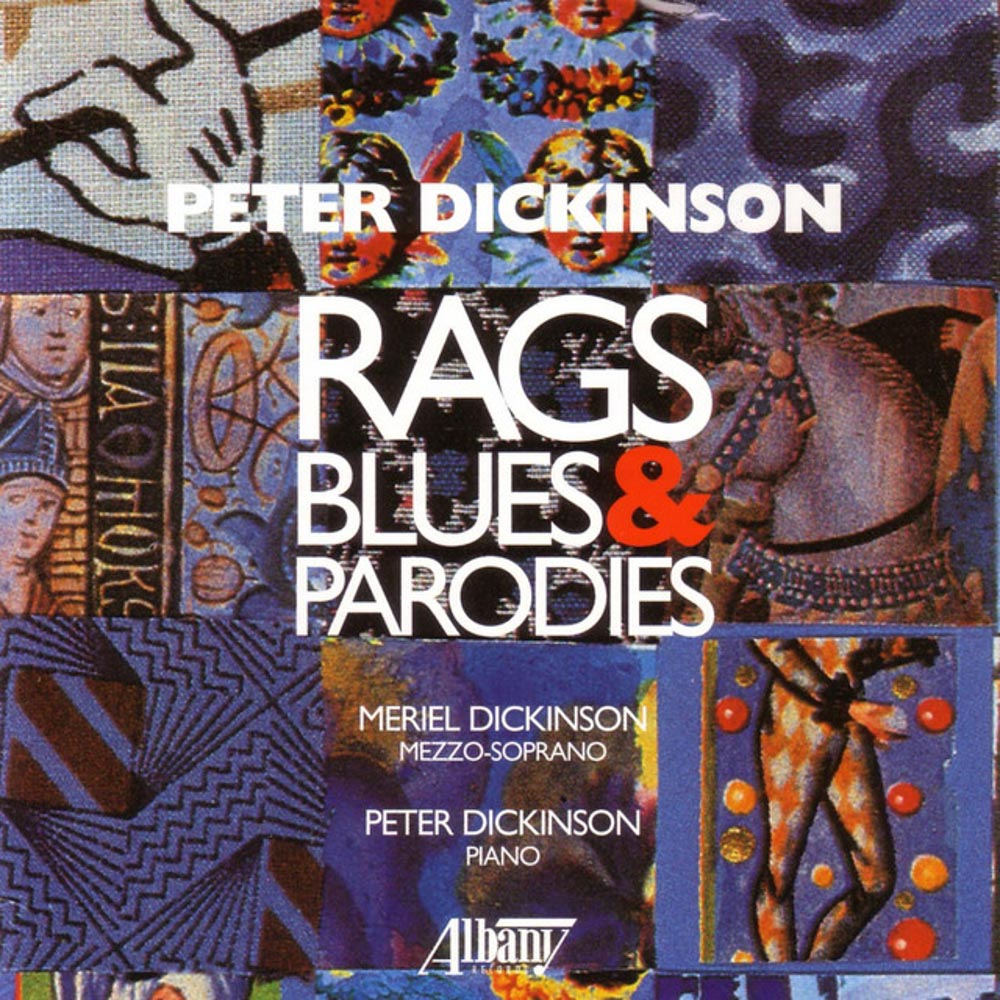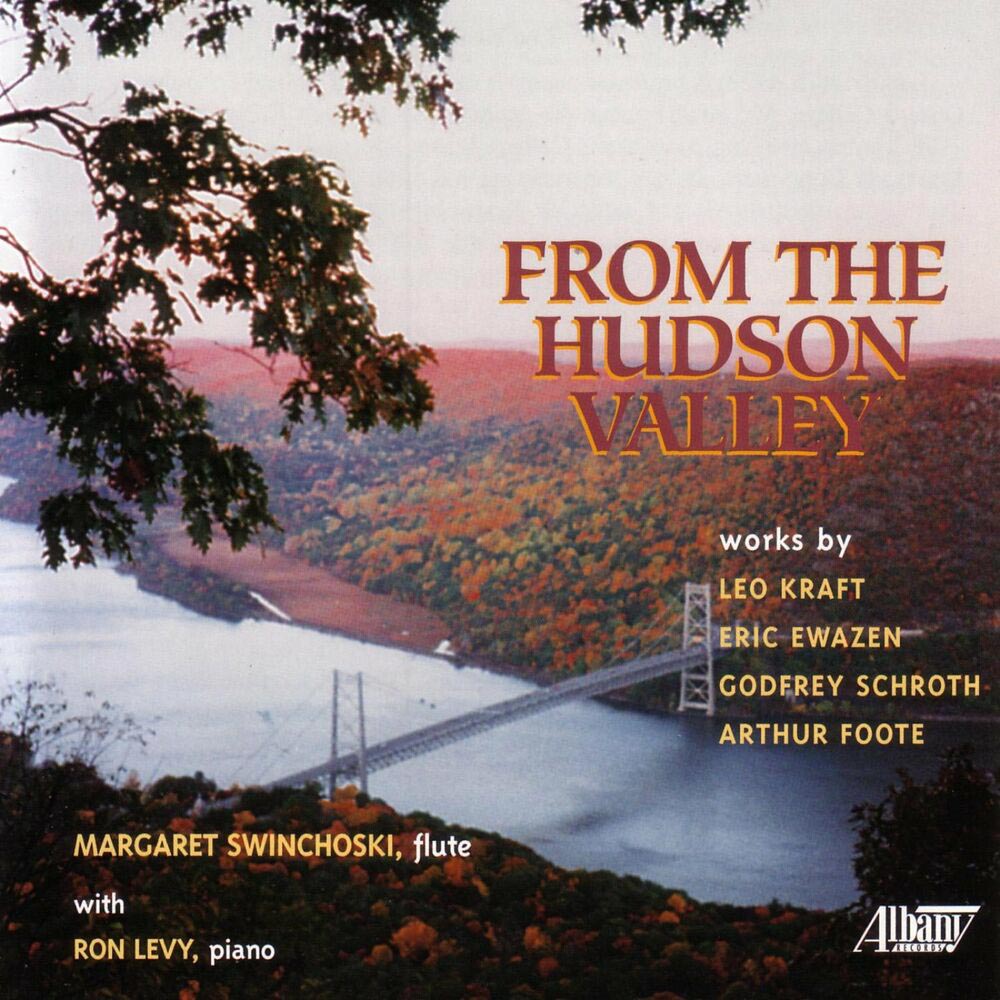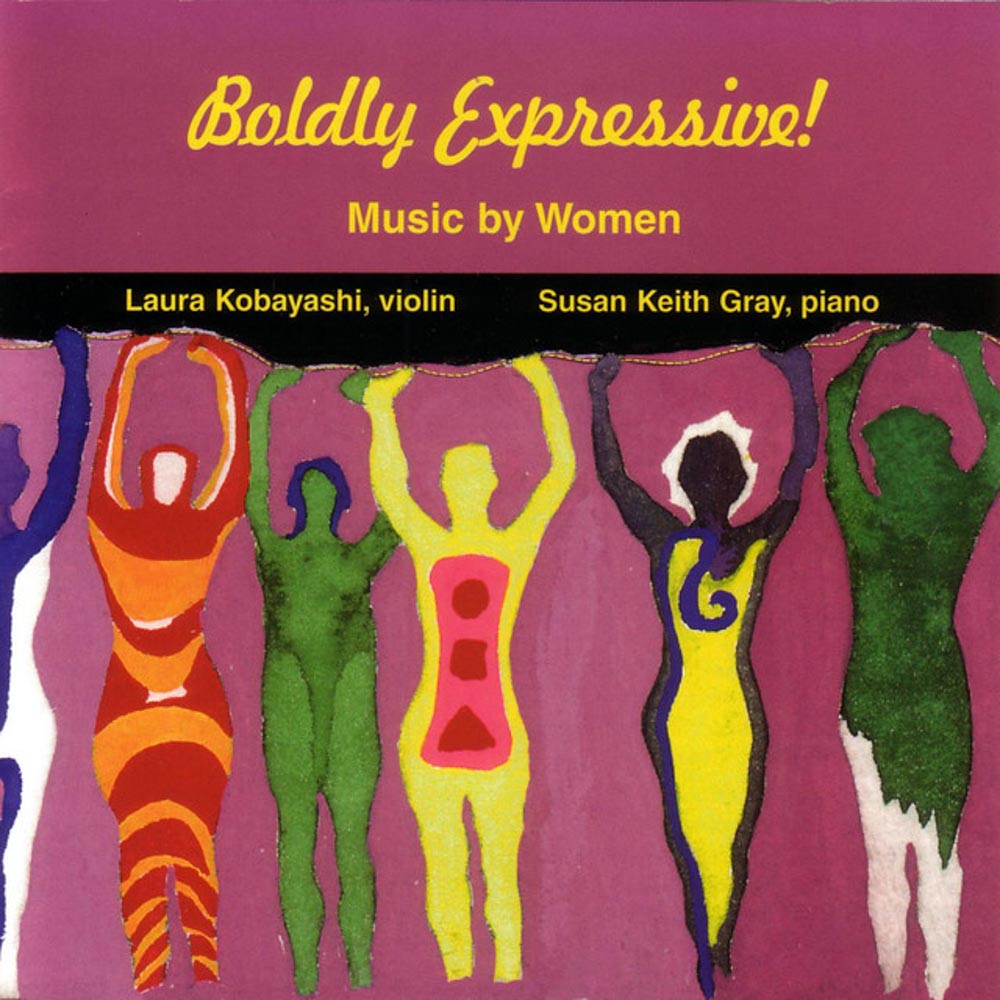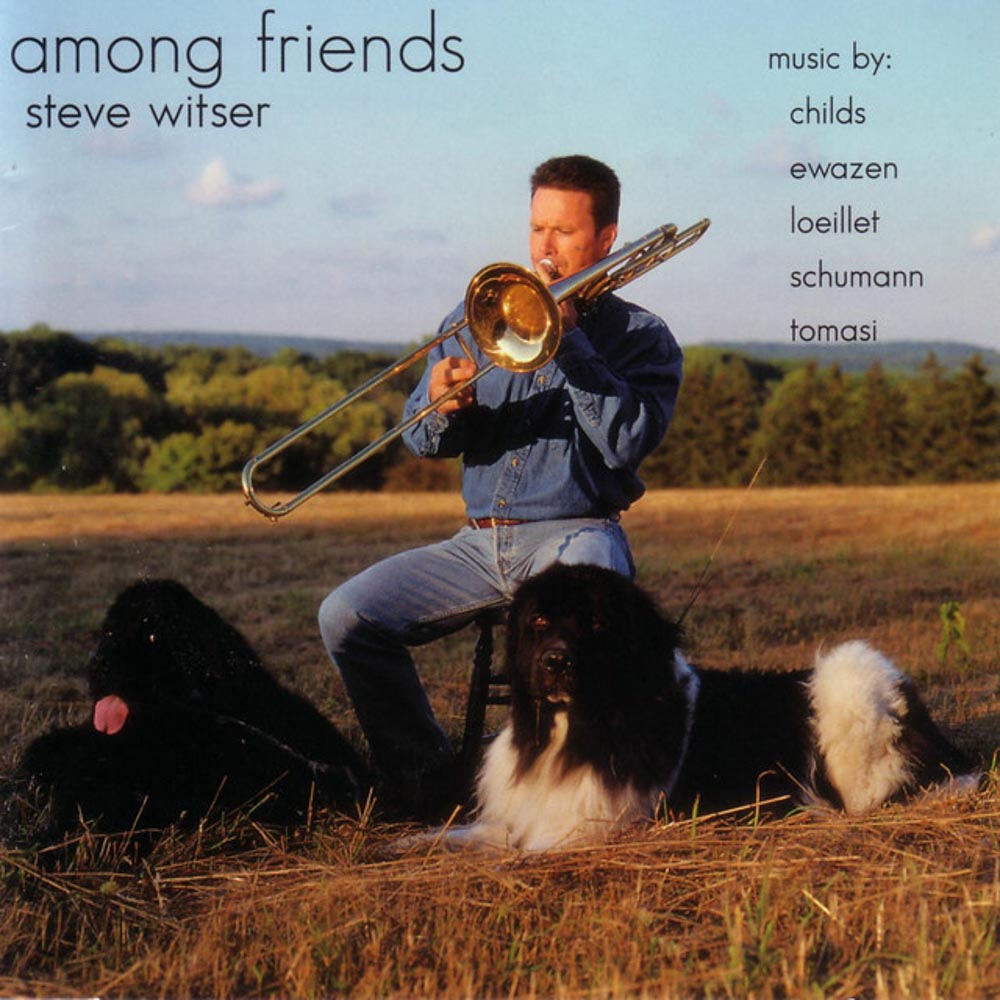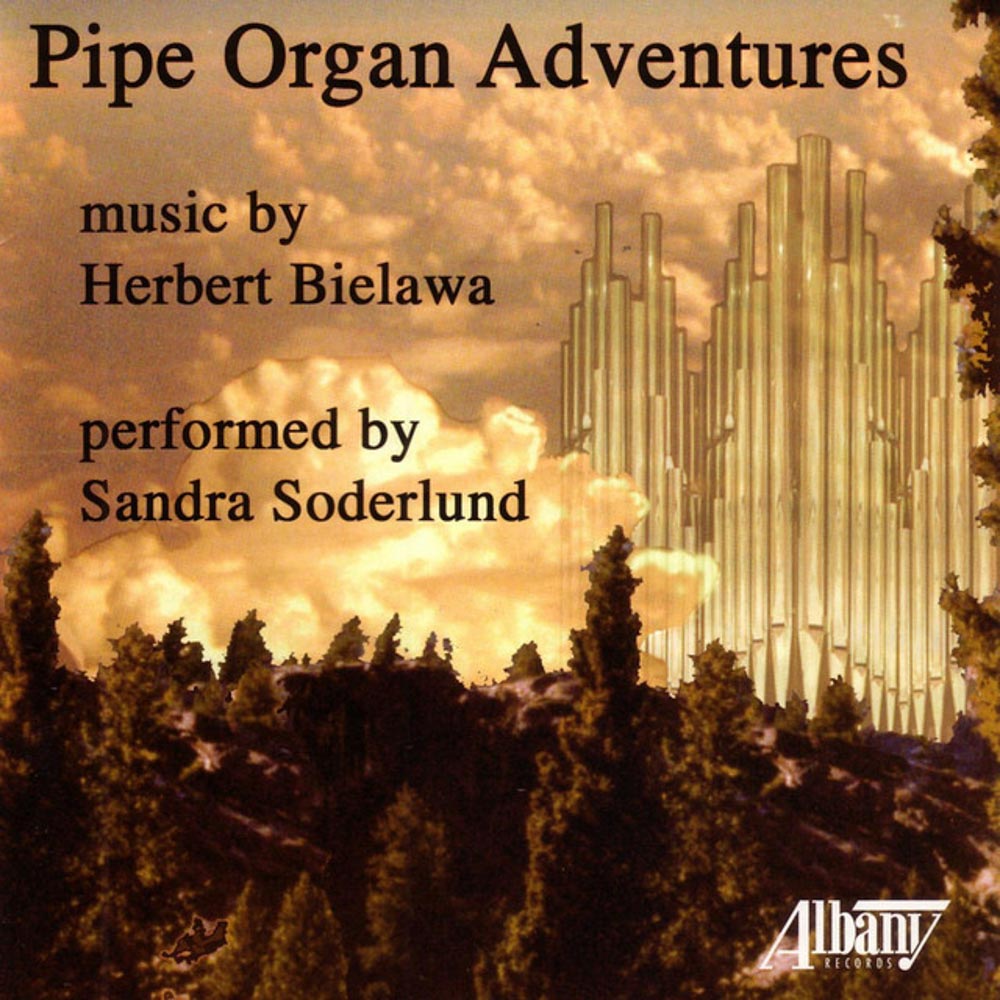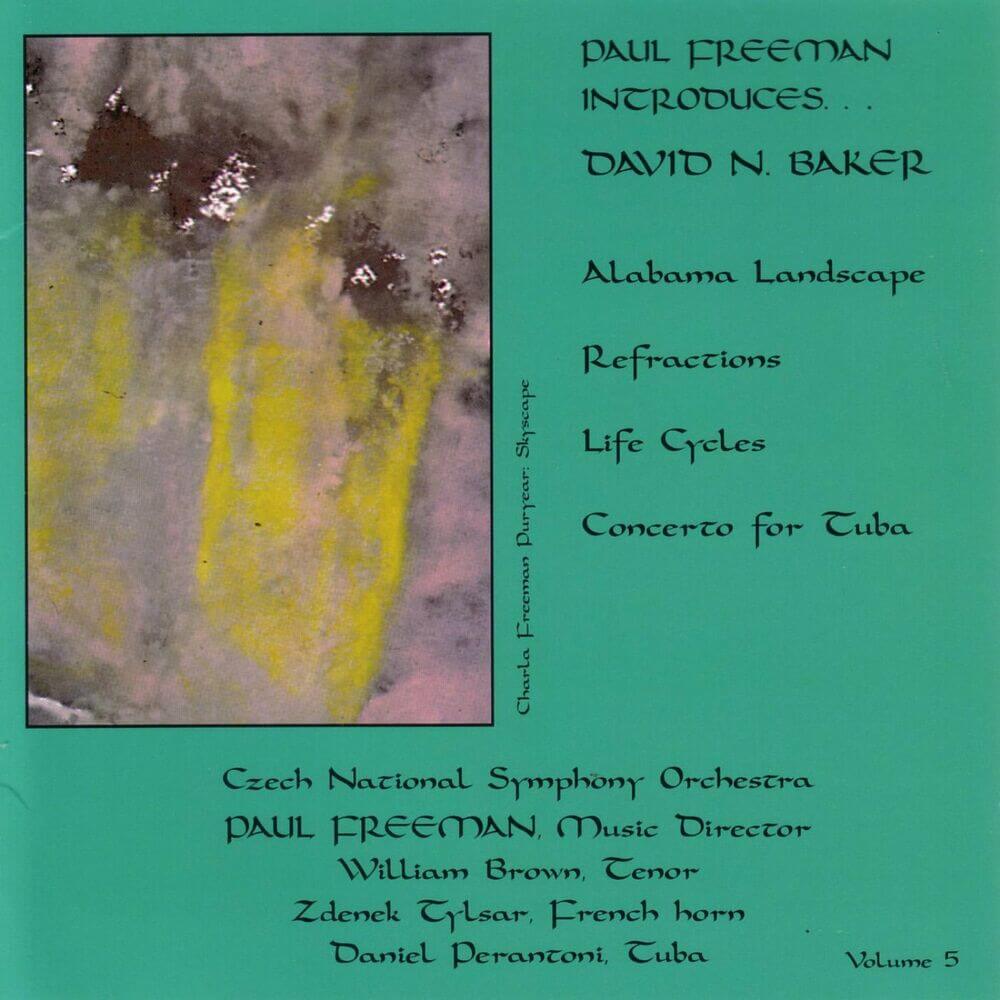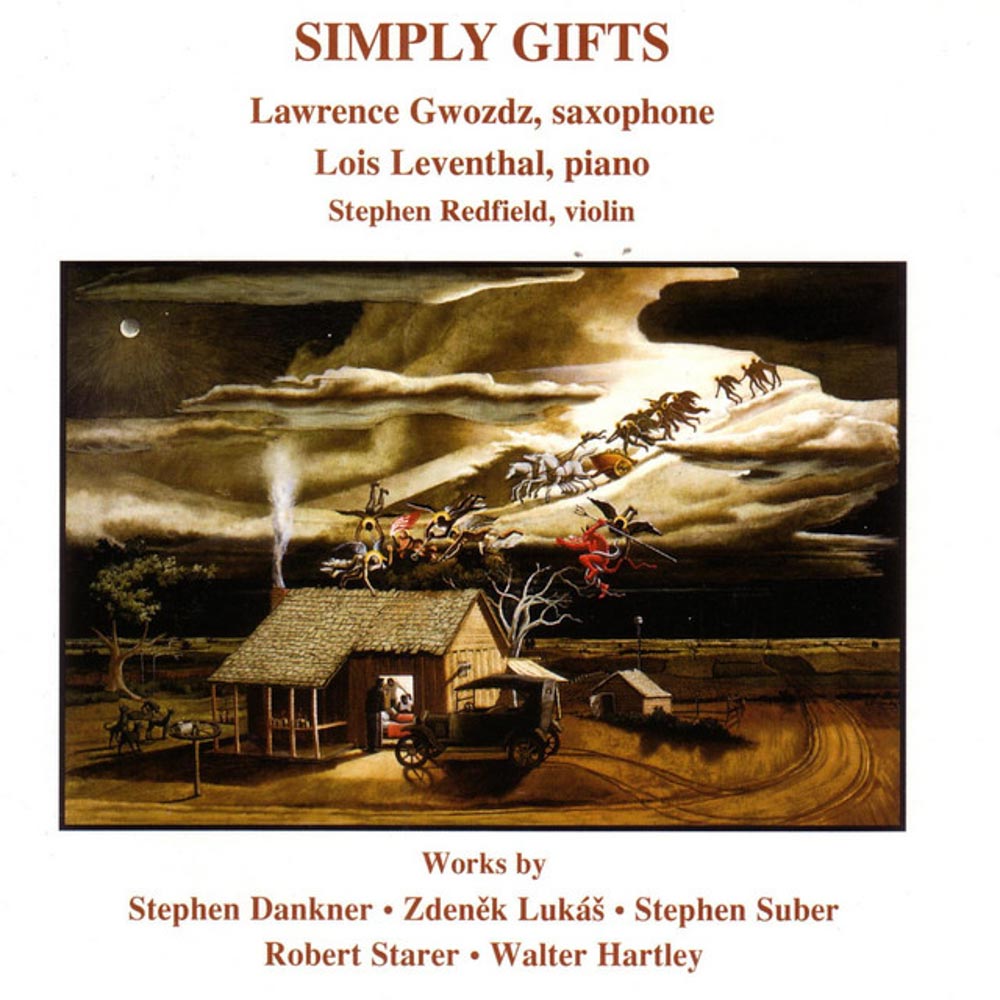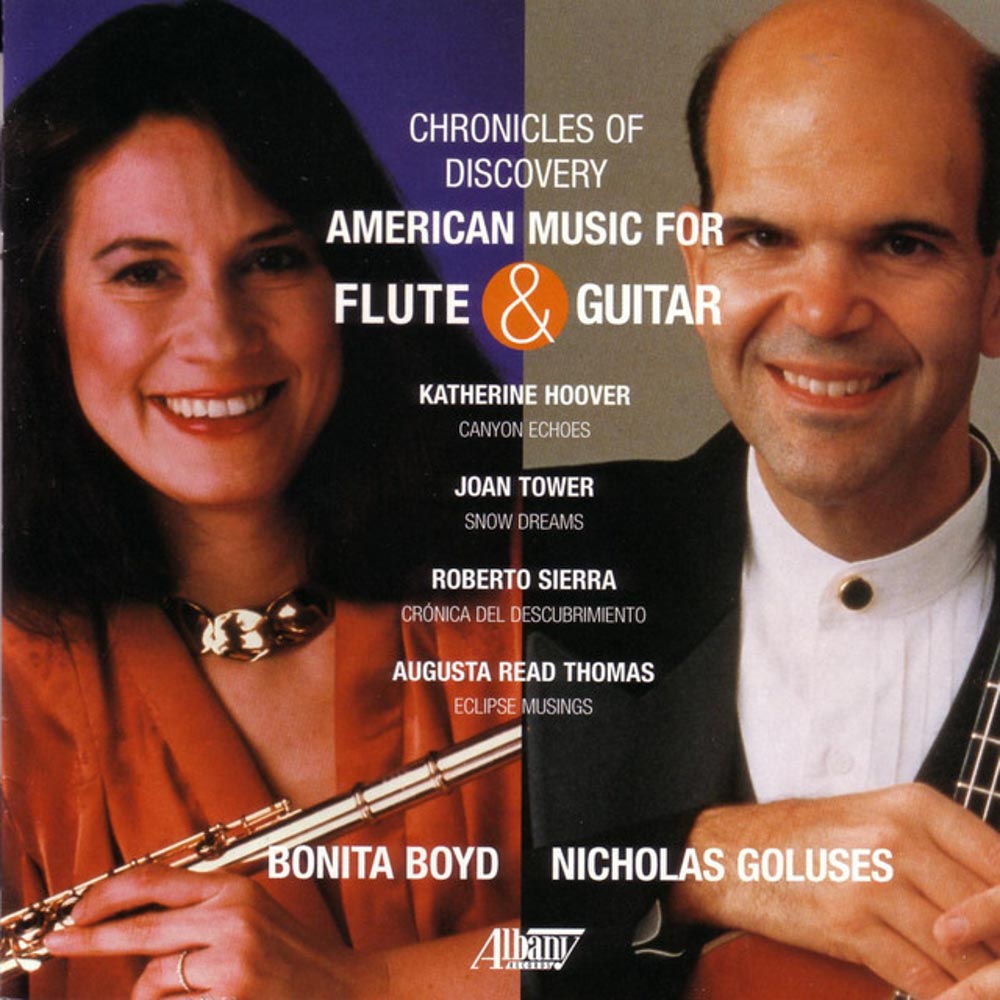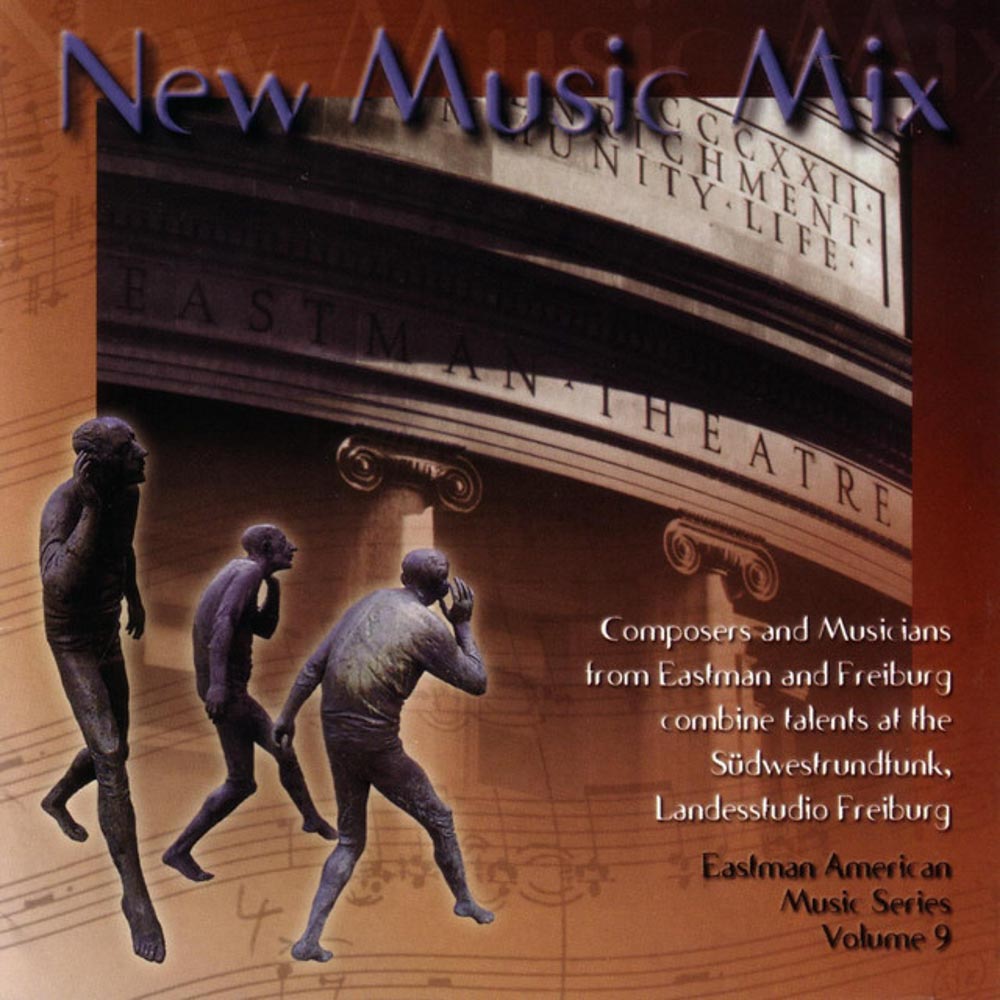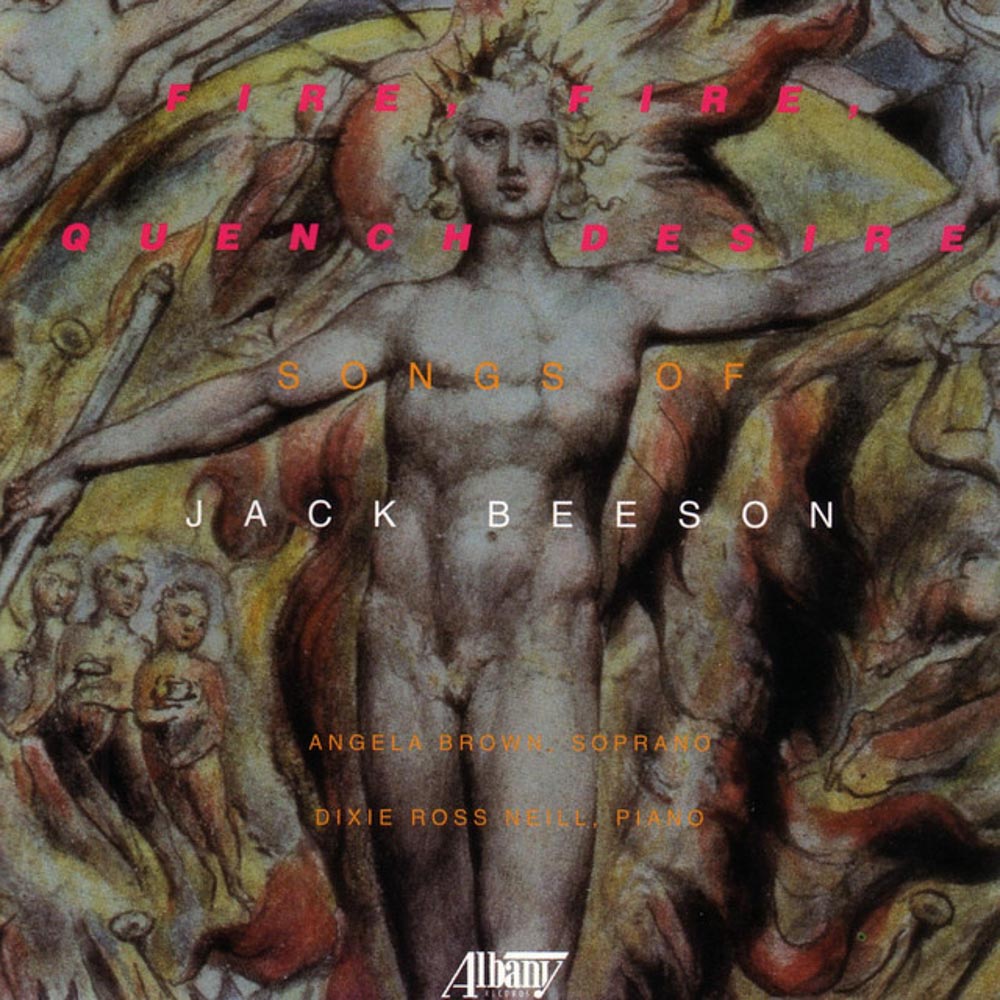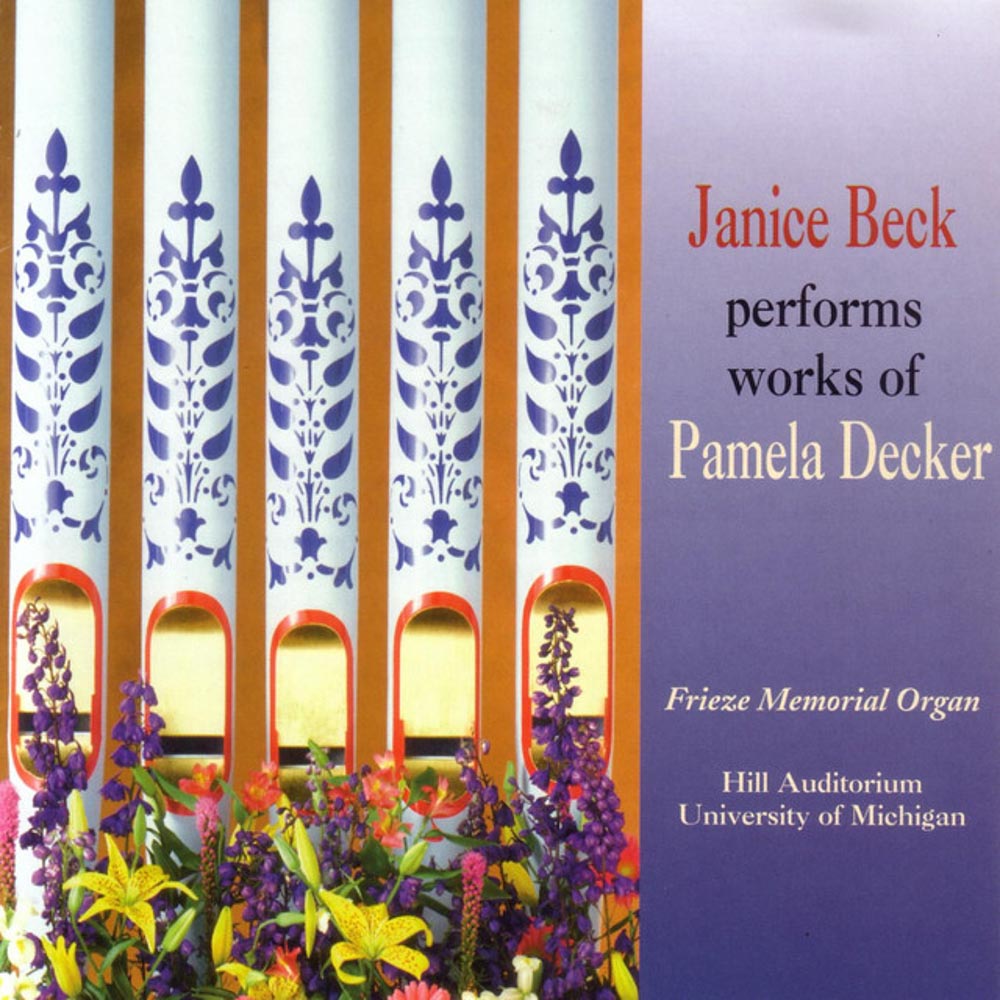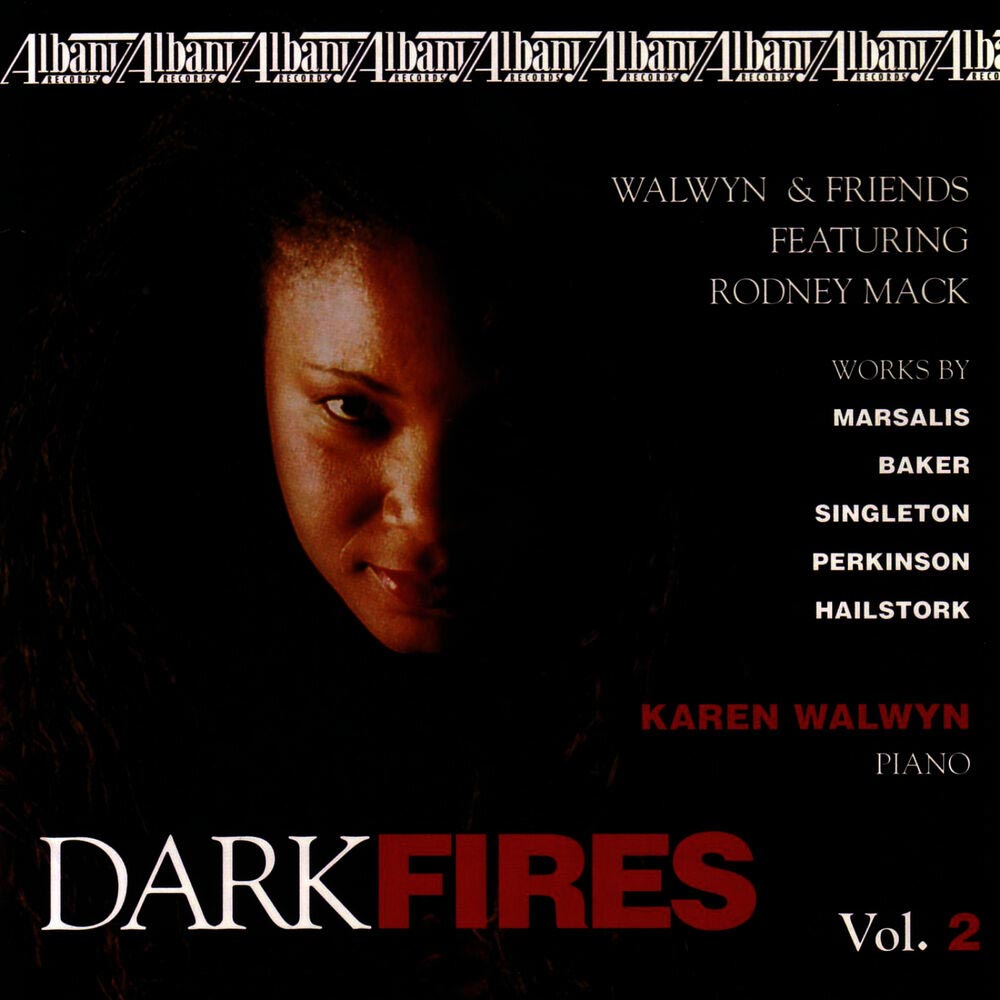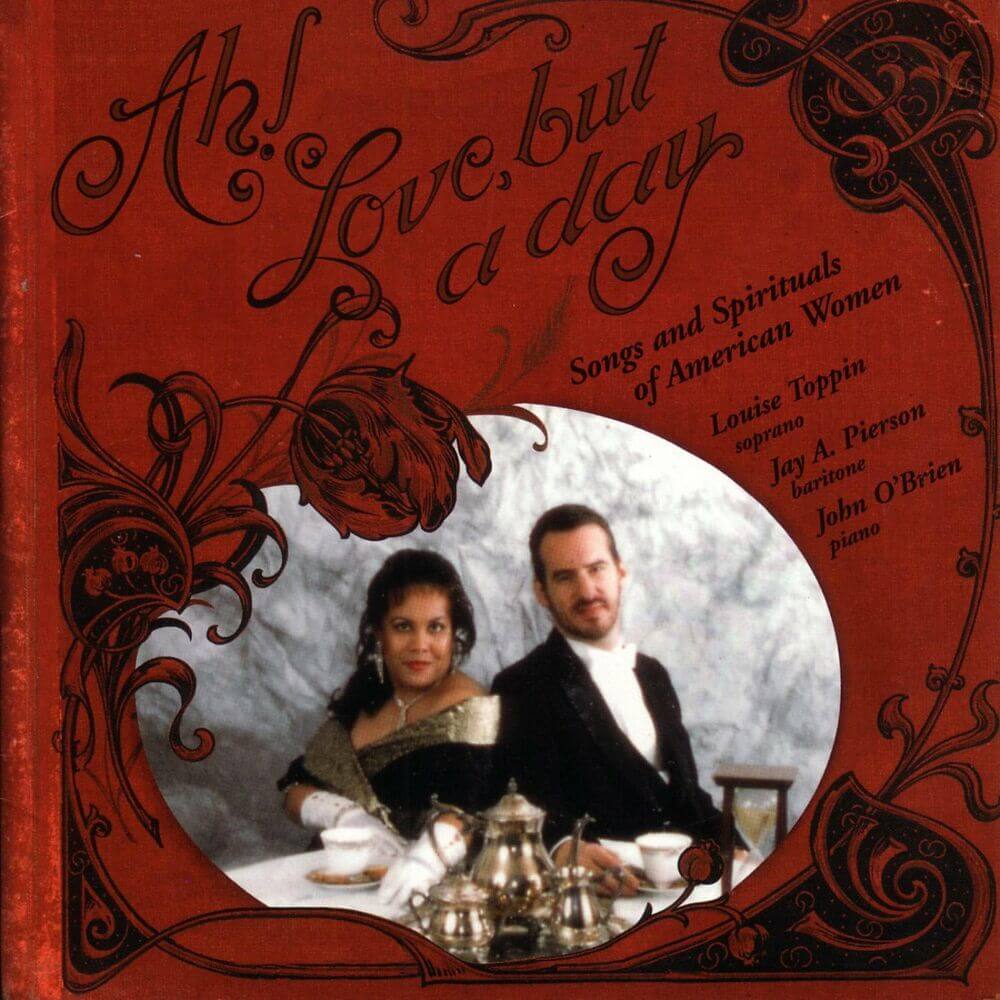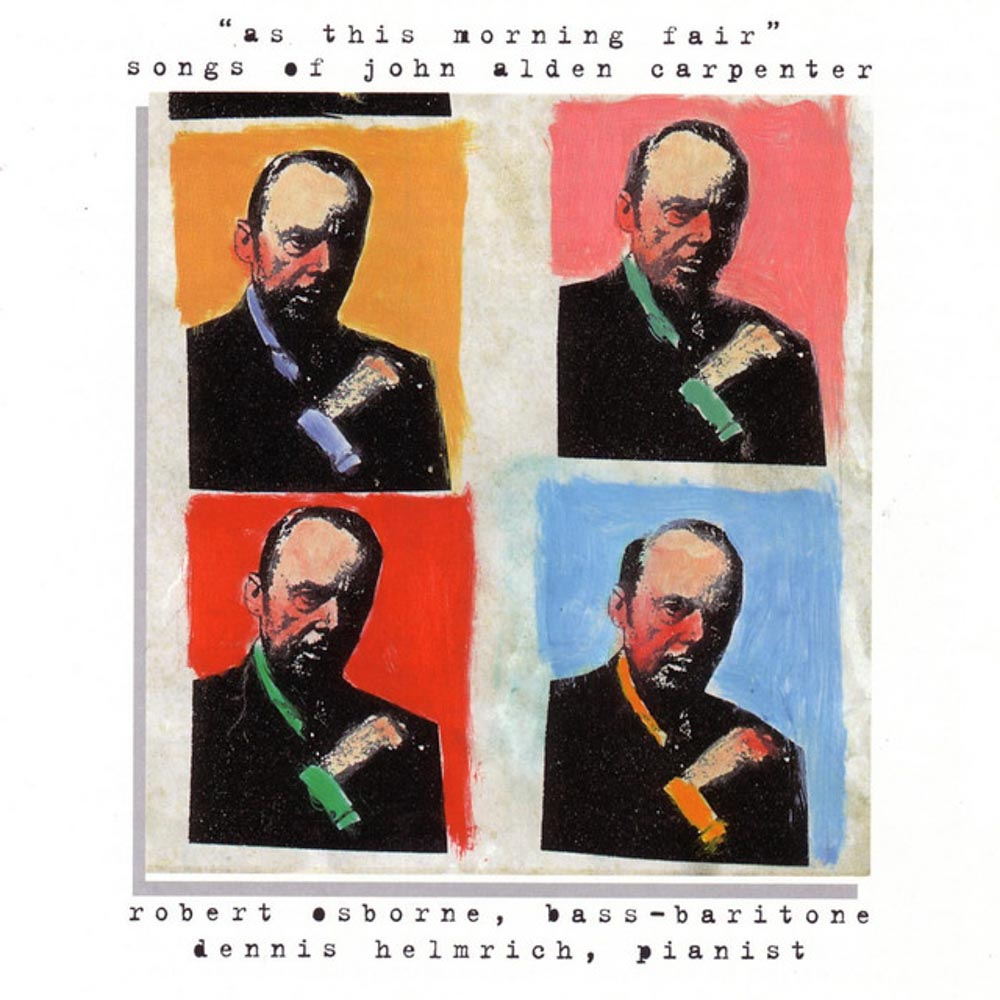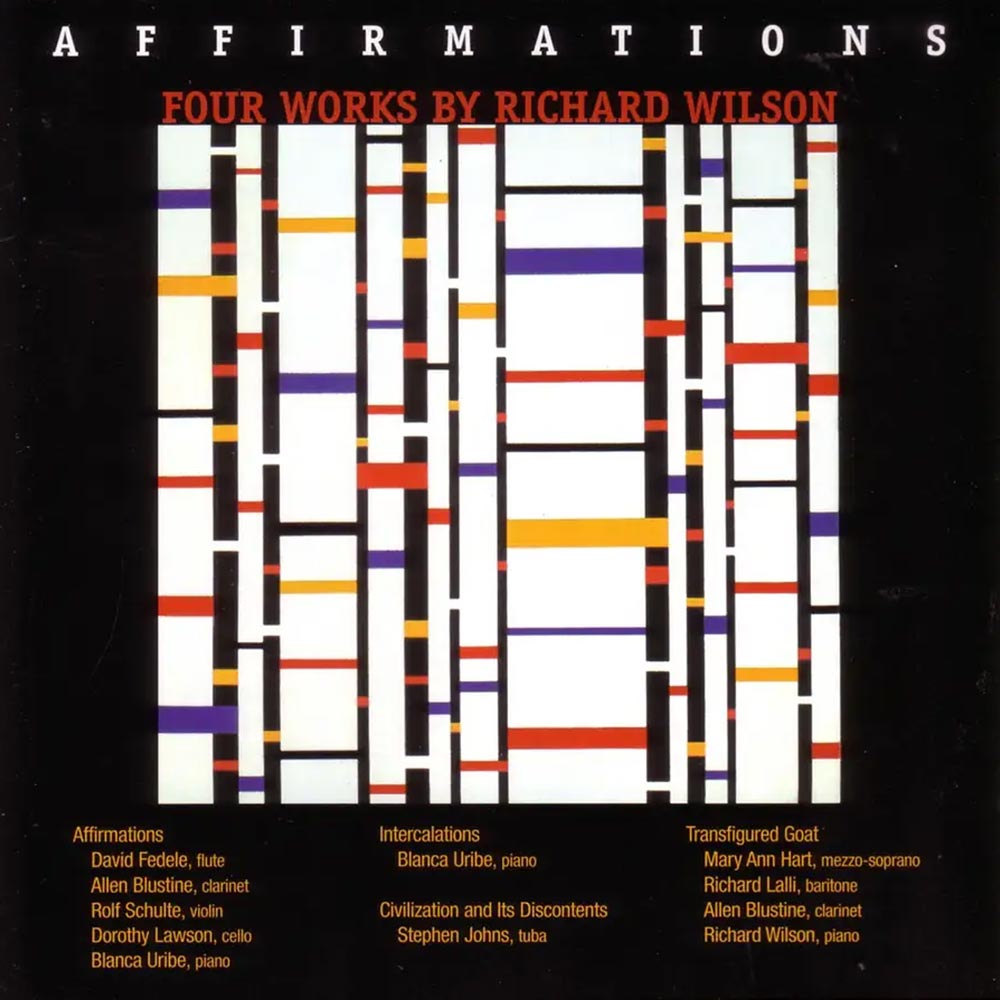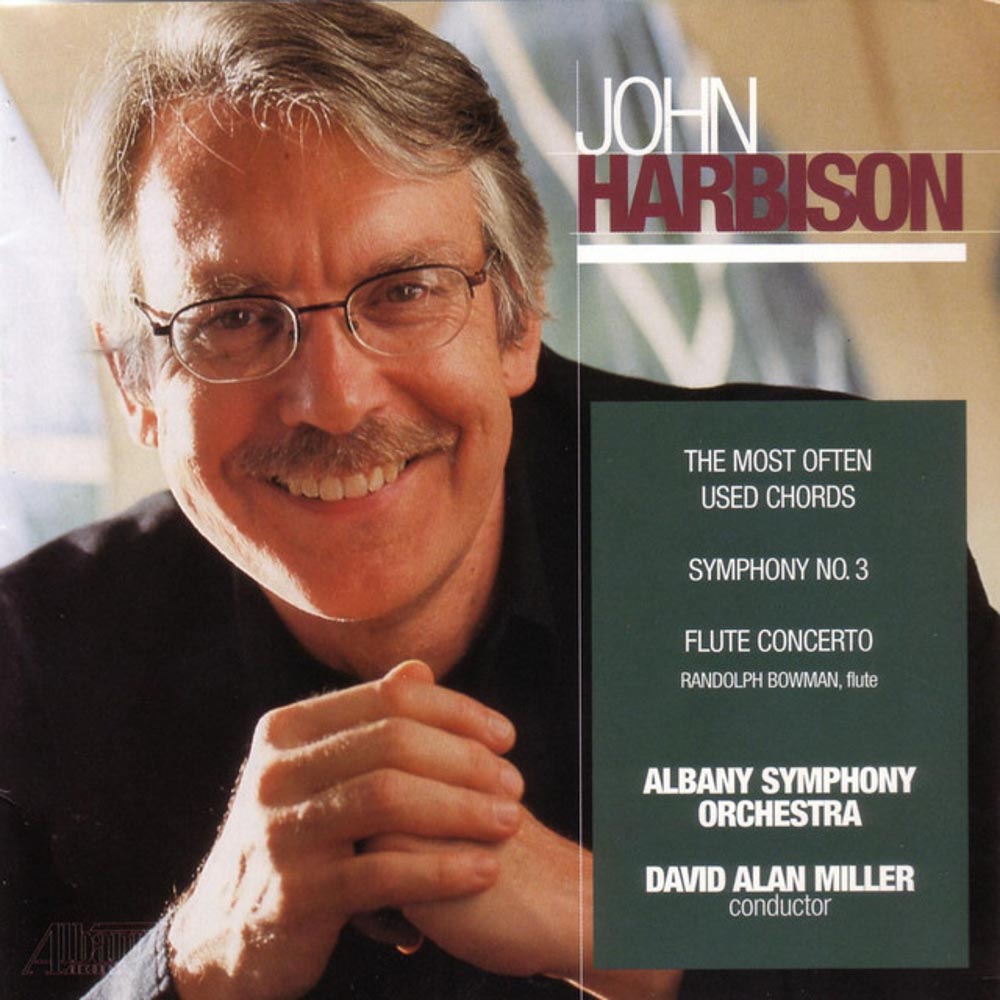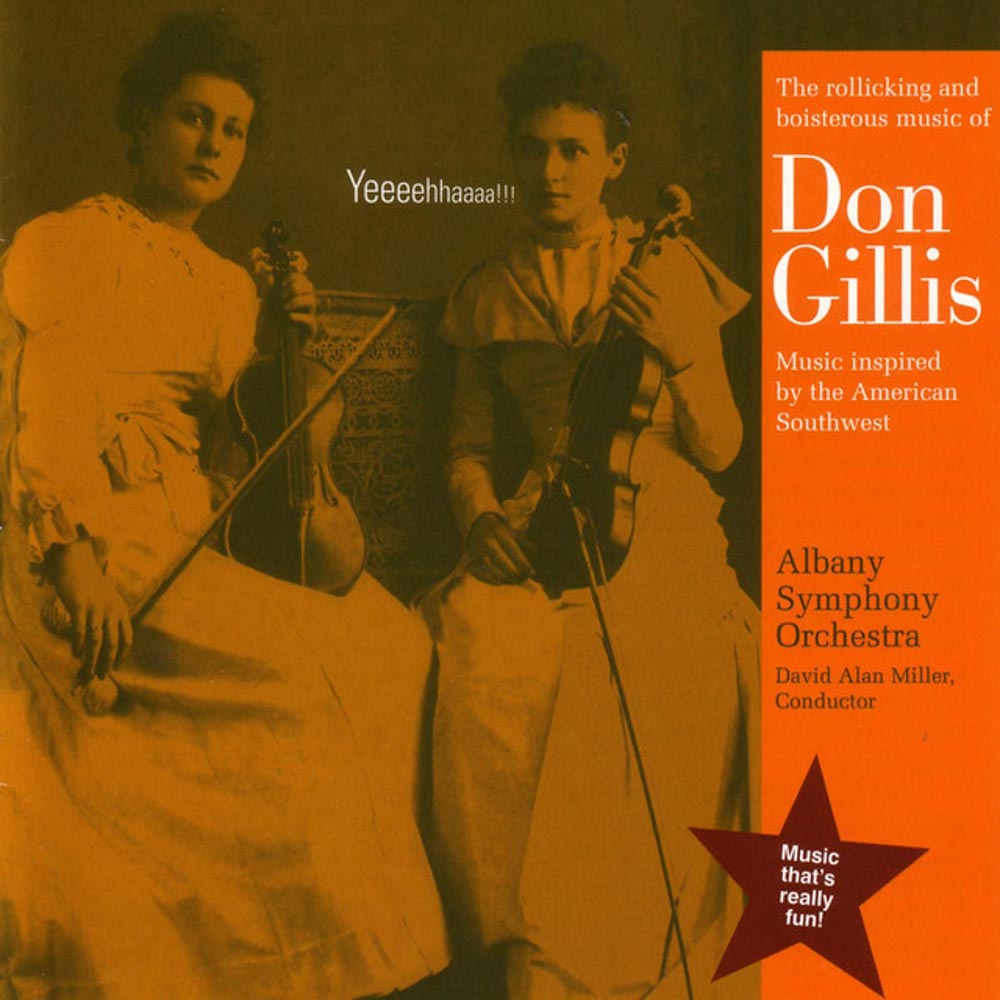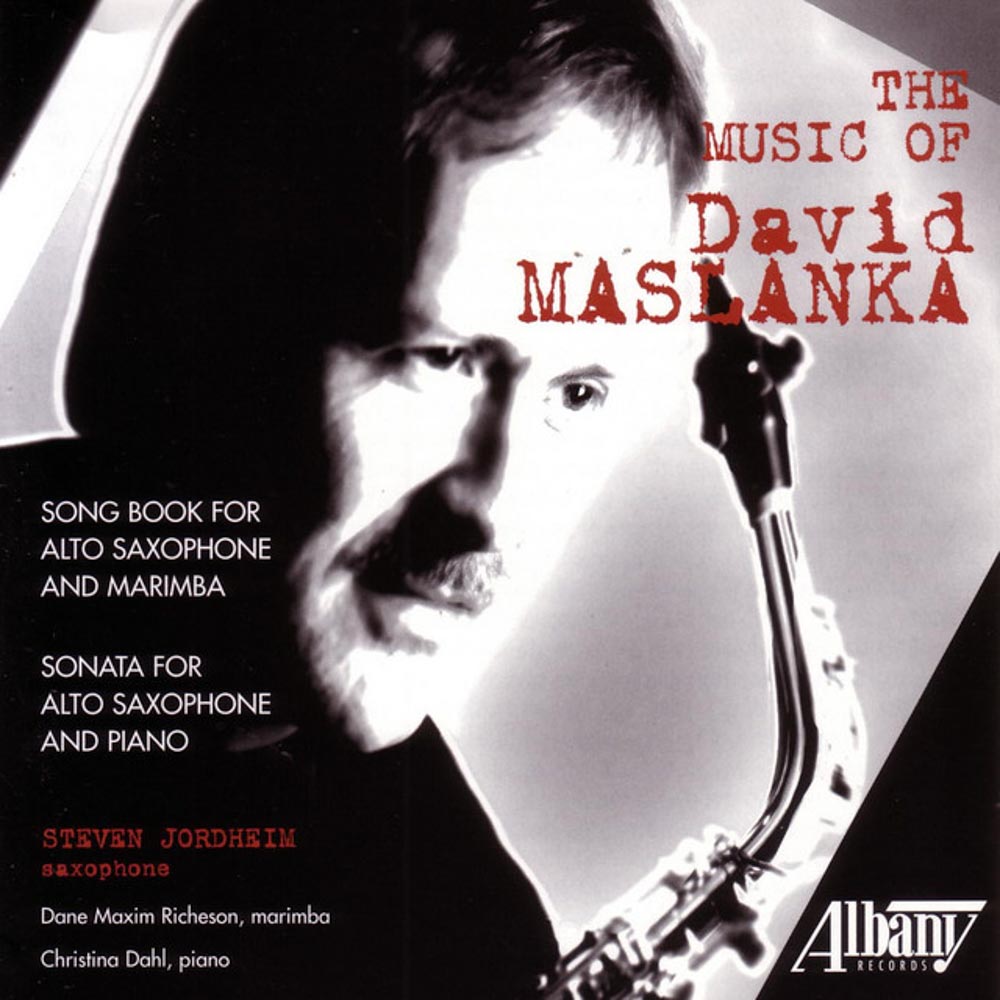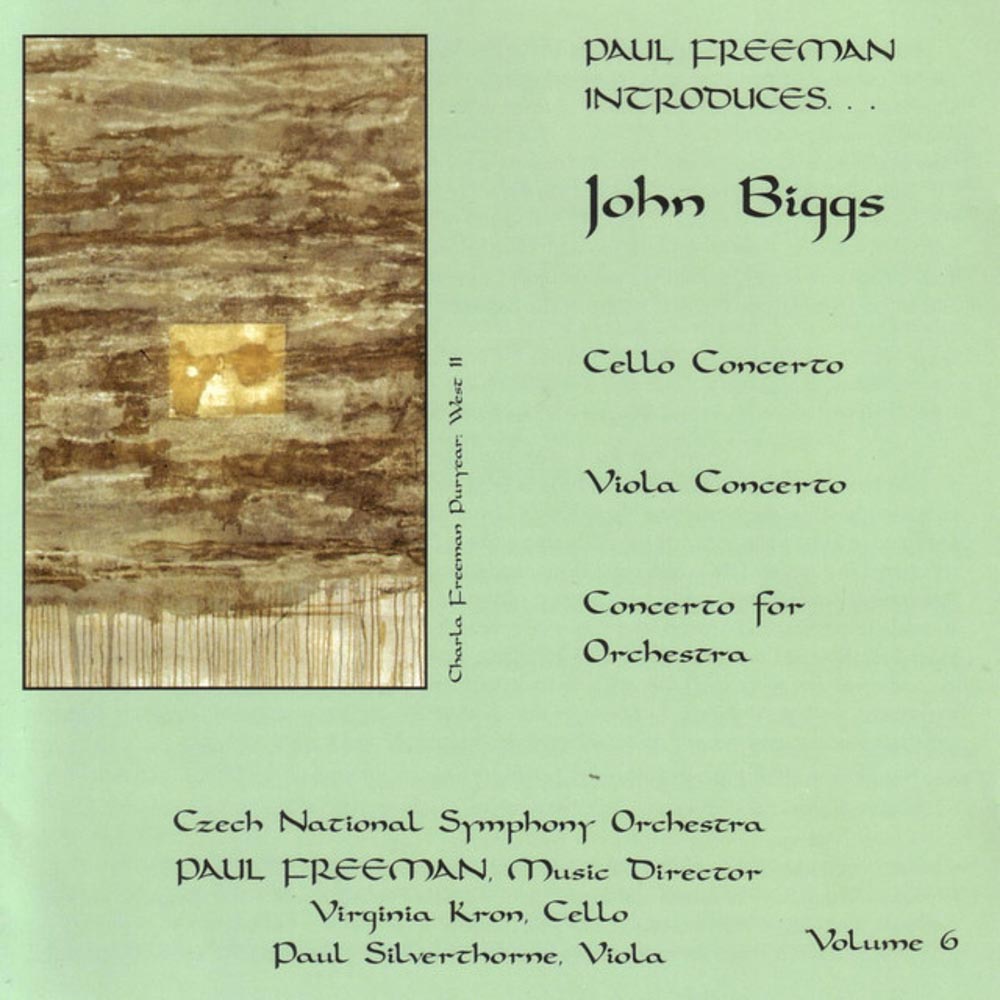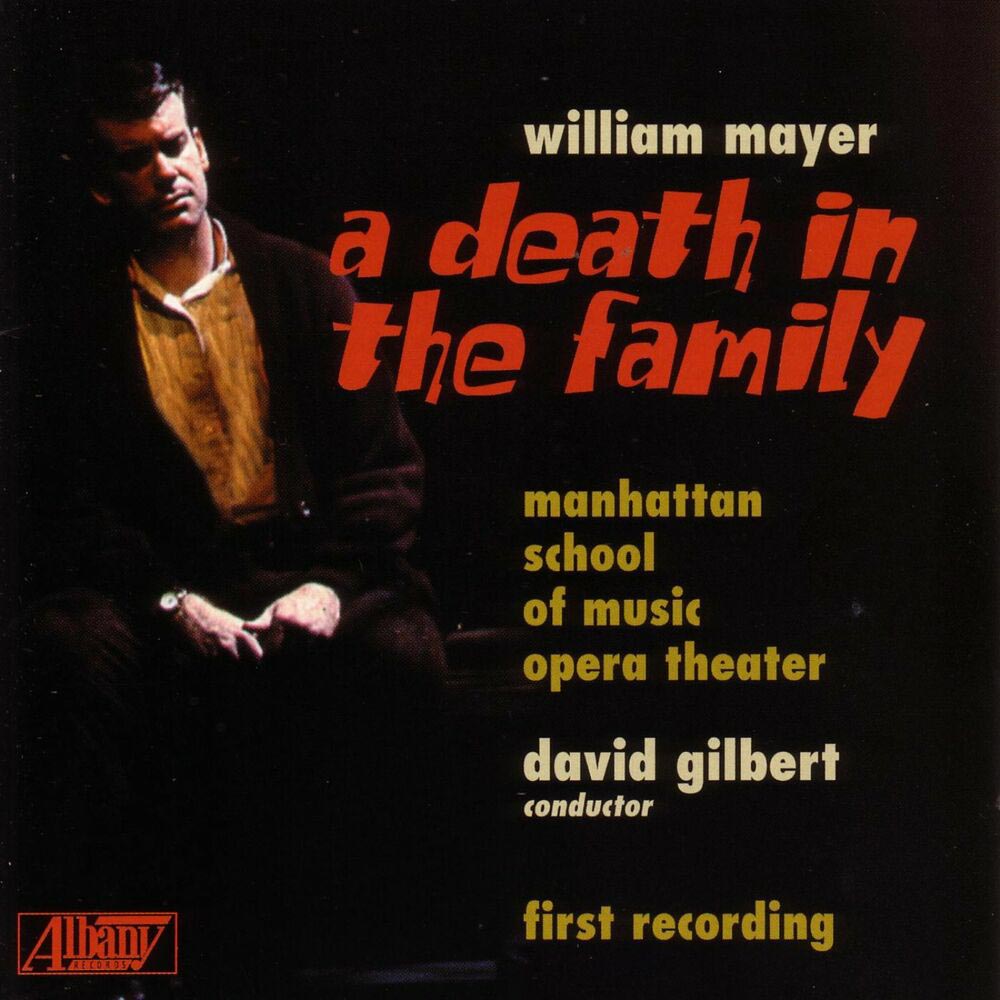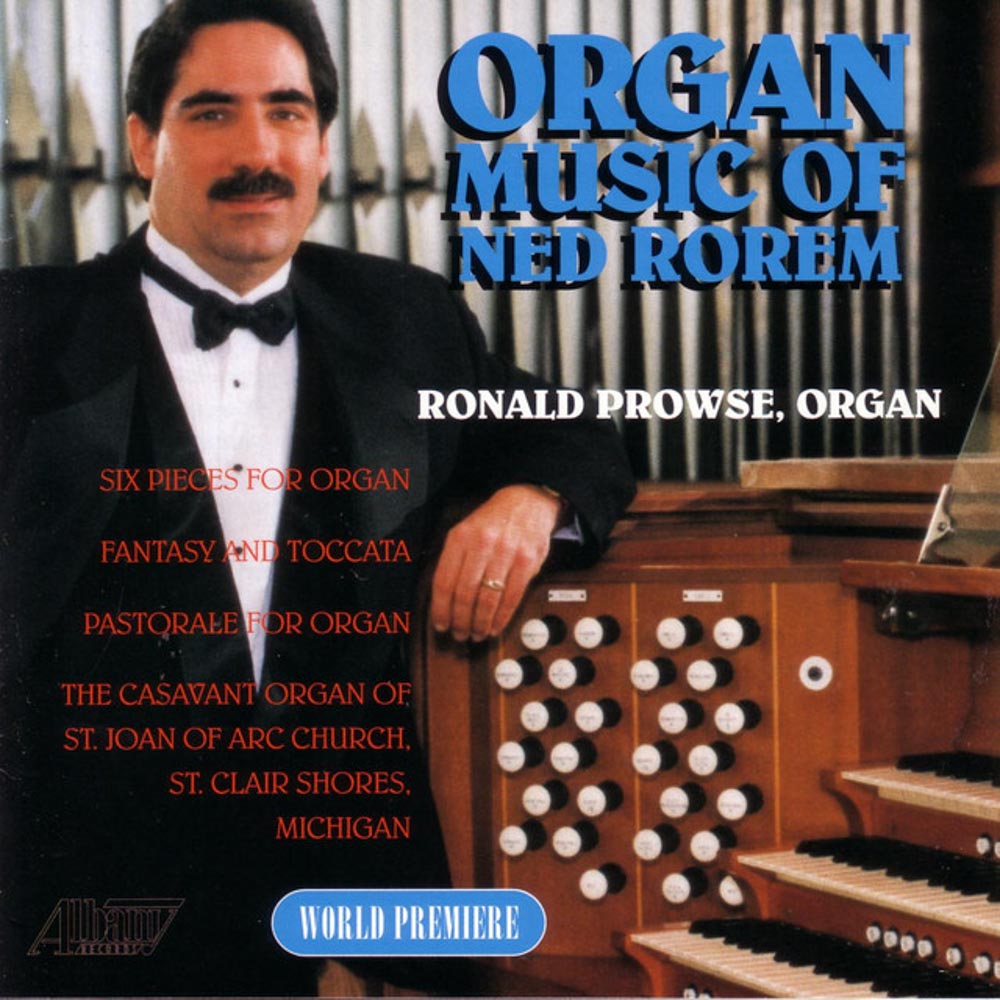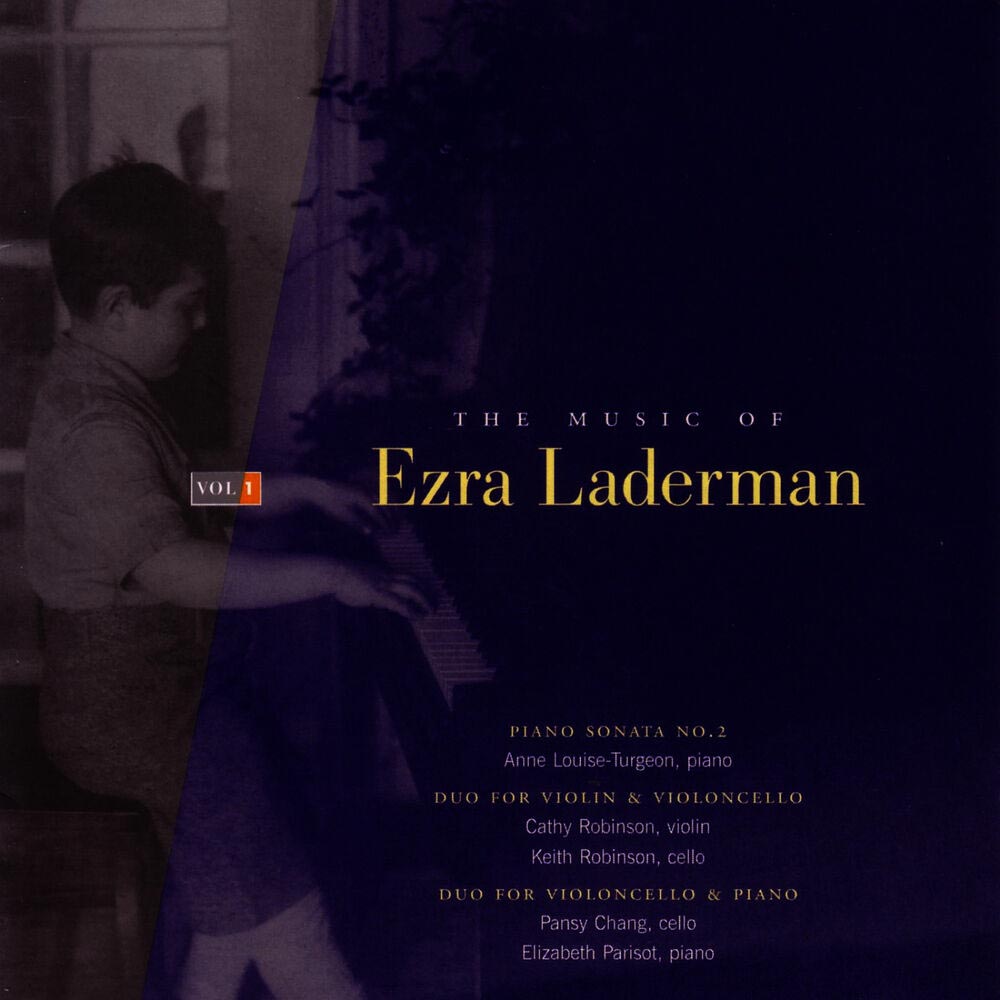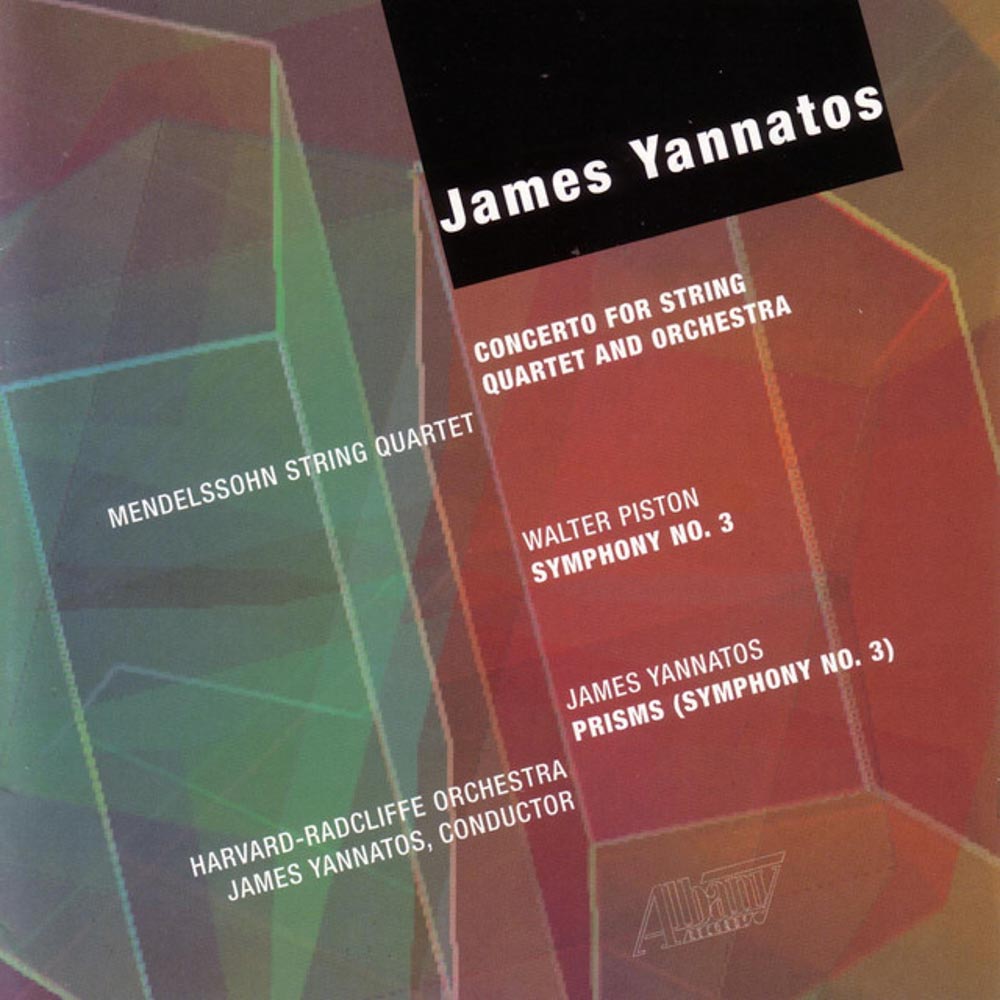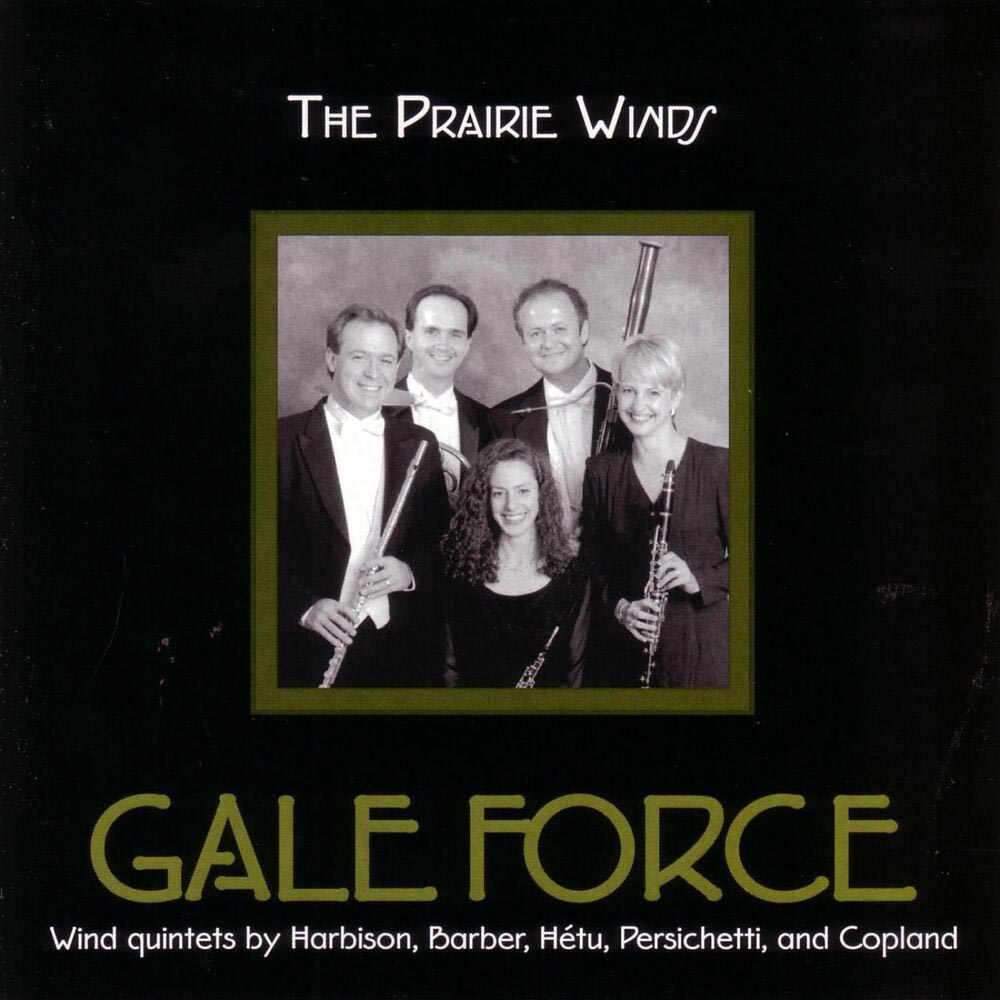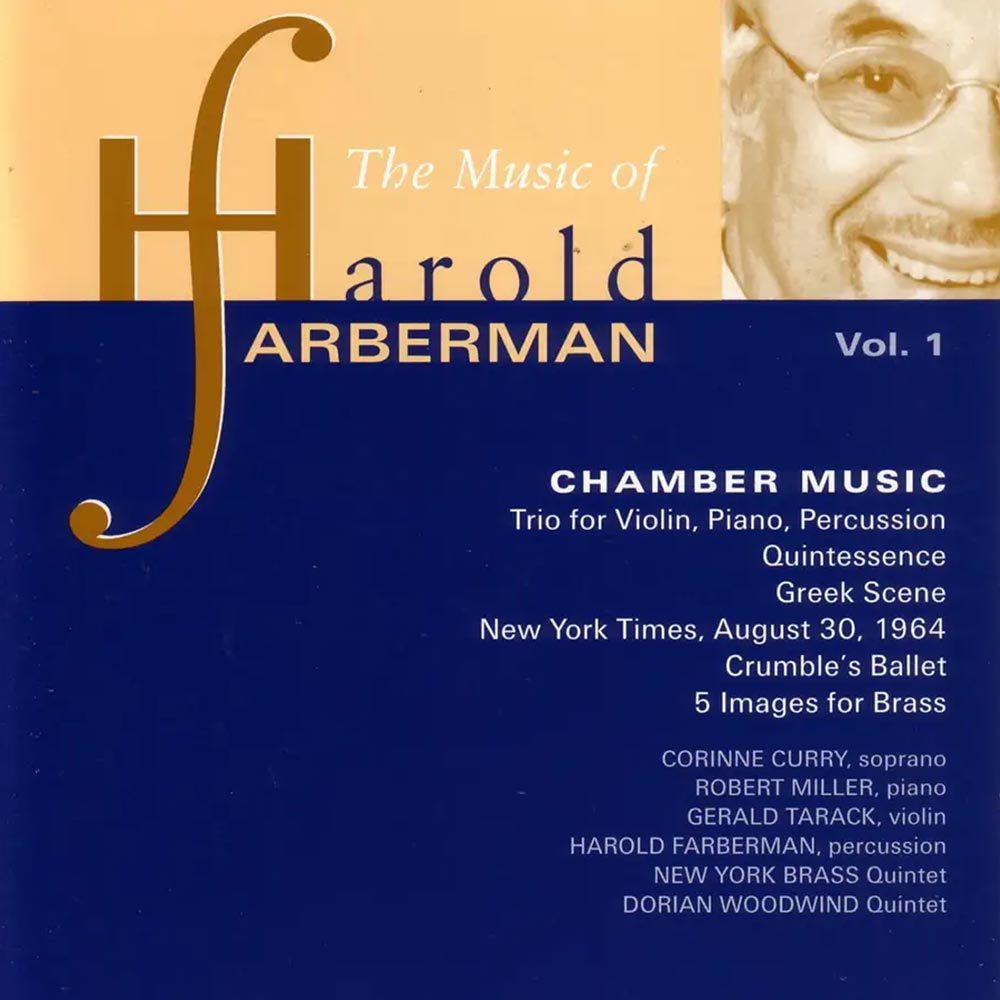Catalog #: TROY0369
Release Date: June 1, 2000InstrumentalThere is nothing quite like the British composer Peter Dickinson's witty musical parody, with its humor at various levels. Who else would make a rag and a set of blues out of hymn tunes? Or turn the main themes of his Piano Concerto (TROY160) into a rag, which is actually played during the course of that work on an upright piano at the back of the orchestra? Or make a blues setting of Byron's "So we'll go no more a-roving" using a chord progression from Ravel and turn the whole thing into an Organ Concerto (TROY160)? Or have an offstage pianist piecing together fragments of a piano rag during his String Quartet No. 2 ? Or make a blues version of Edward MacDowell's salon classic, To a Wild Rose, calling it Blue Rose and consequently climaxing on Scriabin's mystic chord? And following this with a Wild Rose Rag? This CD is a collection to be enjoyed: five piano rags, five blues, three reworkings of Satie, two blues songs and two sets of songs, all presented as a complete program in the immediately attractive manner of all Dickinson's recitals, broadcasts and other recordings.
Catalog #: TROY0370
Release Date: June 1, 2000OrchestralIt is obvious that Albany Records thinks highly of the music of the late American composer Buddy Bazelon, for other of his compositions appear on TROY54, TROY01, TROY74, TROY82, and TROY63. The Symphony No. 6 was composed in 1969. It was commissioned to celebrate the 100th anniversary of the founding of the Temple B'nai Jehudah in Kansas City, Missouri. The symphony exploits the link between the circumstances of its commission and the music Bazelon had written for the 1968 Jules Dassin feature-film documentary on the Six-Day War, Survival 67. The first performance was given by the Kansas City Philharmonic in November, 1970. Overture to Shakespeare's Taming of the Shrew was composed in 1960. It is based on music written for a production of The Taming of the Shrew by the American Shakespeare Festival Theater in 1957. The Overture already bears the fingerprints of the mature Bazelon style in its colorful orchestration and clearly etched musical profiles. Shakespeare's characters spring off the page and engage the listener in this effervescent and effective musical portrait. The first performance of the work was given by the National Gallery Orchestra conducted by Richard Bales in May, 1964. The Short Symphony was composed in 1961. The numbering Bazelon used for his Symphonies shows that he regarded this as his second symphony. The Short Symphony makes a quantum leap in focusing orchestral forces to create the bristling rhythmic energy that marks all of the composer's later scores. The first performance of the work was given by the National Symphony Orchestra conducted by the composer in December 1962. If you enjoy a big, 20th century, American orchestral sound, then this is a disc you will enjoy.
Catalog #: TROY0371
Release Date: February 1, 2000ChamberLeo Kraft is professor emeritus of the Aaron Copland School of Music at Queens College. He studied composition at Queens College and at Princeton University. He also studied in Paris with Nadia Boulanger. His From the Hudson Valley was commissioned by a consortium of 20 flutists from the National Flute Association and received its premiere on August 15, 1998 at their annual convention in Phoenix. Godfrey Schroth was a pupil of the American composer Paul Creston. He first came to attention in 1959 when his Piano Quartet won a major prize and was performed by the Phoenix Quartet. He describes his Spring in Bucks County as "a challenge to both the pianist and the flutist, who must play three instruments." The suite was premiered at the Philadelphia Art Museum in 1974. Its three movements are Equinoctial Dances, River Willows and Fields of May. Eric Ewazen was born in Cleveland, Ohio and studied under Samuel Adler, Milton Babbitt, Warren Benson, Gunther Schuller and Joseph Schwantner at the Eastman School, Tanglewood and the Juilliard School where he has been a member of the faculty since 1980. His Ballade, Pastorale and Dance was premiered at Aspen in July 1993.
Catalog #: TROY0372
Release Date: September 1, 2000InstrumentalHere we have four premiere recordings by 19th and 20th century women composers. Here are some facts about these relatively unknown composers. Grandval studied music with Friedrich Flotow, composition with Saint-Saens and piano with Chopin. Not bad! She was a prolific composer and many of her works were published, performed and favorably reviewed during her lifetime. Johanna Senfter was from Oppenheim, Germany. She studied in Frankfurt and then in Leipzig with Max Reger. She composed more than 180 works including nine symphonies, concertos for piano, violin, and cello, five string quartets, a piano quintet, a clarinet quintet and numerous vocal works. Serra Miyeun Hwang was born and raised in Seoul, Korea. She moved to the United States at the age of 18, later receiving a BA in composition for the University of California. The German composer Barbara Heller is best known as the editor of a collection of the piano music of Fanny Mendelssohn-Hensel. Clarke and Bacewicz need no introduction.
Catalog #: TROY0373
Release Date: March 1, 2000InstrumentalSteve Witser has served as assistant principal trombone of the Cleveland Orchestra since 1989, and is a member of the highly acclaimed Center City Brass Quintet. He was educated at Eastman and since 1993 has been a faculty member of the Cleveland Institute of Music. He has also been principal trombone of the Honolulu Symphony, Santa Fe Opera Orchestra and the Phoenix Symphony. He has also taught at Oberlin and the Eastman School. Kathryn Brown performs regularly as a solo pianist, chamber musician and singer. She is currently on the piano faculty and is a vocal coach at the Cleveland Institute of Music.
Catalog #: TROY0374
Release Date: October 1, 2000OrganHerbert Bielawa earned his degree in piano and composition at the University of Illinois and the University of Southern California. He has been a member of the faculty of Bethany College and San Francisco State University where he founded Pro Music Nova, a contemporary music performing group, and the Electronic Music Studio. Sandra Soderlund is Organist at the Unitarian Universalist Church of Berkeley and teaches harpsichord and Organ at Mills College in Oakland, California. She is on the National Council of the American Guild of Organists.
Catalog #: TROY0375-76
Release Date: May 1, 2000OperaSince its first appearance in 1975, Zhurbin's rock opera Orpheus and Eurydice has been the focus of enormous interest and attention. The reaction from the Soviet Communist Press and the official propaganda "apparatchiks" was negative and even scandalous. Somehow the work managed to survive all this - mostly because general audiences disregarded the "directives" from the Central Committee. There is an old Russian proverb which goes "people vote with their feet," which means the audience either comes to the performance or it doesn't. In the case of Orpheus the response was incredible. In some cities it was performed twice in one day, two weeks in a row at the sports arena with six to seven thousand tickets sold at every performance. One group gave it 2500 performances all over the Soviet Union and Europe. This two CD set is a remastering of the original cast album made in 1977 by the St. Petersburg Theater Rock Opera Group. About the Two Portraits, the composer writes: "My love for the great poetry of the two Russian poets from the first half of the 20th century - Marina Tsvetayeva and Velemir Khlebnikov - inspired me to write this music in an attempt to create some kind of "Musical Portraits." This set should have broad appeal to a wide group of listeners. It is really a "crossover" album.
Catalog #: TROY0377
Release Date: April 1, 2000OrchestralDavid Baker is a native of Indianapolis and currently holds the position of Distinguished Professor of Music and Chairman of the Jazz Department at the Indiana University School of Music in Bloomington. A virtuosic performer on multiple instruments and top in his field in several disciplines, Mr. Baker has taught and performed throughout the United States and abroad. He is also the conductor and artistic director of the Smithsonian Jazz Masterworks Orchestra. He studied with J.J. Johnson, Janos Starker, William Russo, Bernard Heiden and Gunther Schuller among others. Paul Freeman writes: "For many years it has been my pleasure to perform the music of the distinguished composer David N. Baker. I was first introduced to his creative talent during the mid-1970s when we included his music in the historic Black Composers Series released by Columbia. I have always been impressed by the breadth and scope of his talent and the extraordinary range of his tonal palette." The booklet notes about the music are by the composer.
Catalog #: TROY0378
Release Date: March 1, 2000ChamberBorn to Polish-American parents in Niagara Falls, New York, Lawrence Gwozdz has achieved an international reputation for his success at revealing the inherent qualities of the saxophone intended originally by its inventor, Adolphe Sax. His debut in New York's Weill Recital Hall was described in Musical America as an "extraordinary performance of contemporary music" with "the kind of timbre Adolphe Sax most likely had in mind...always with subtlety and taste." He is Professor of Saxophone at the University of Southern Mississippi, and did indeed study with Sigurd Rascher, among others.
Catalog #: TROY0379
Release Date: April 1, 2000ChamberAbout her piece Canyon Echoes composer, conductor and flutist Katherine Hoover writes: "This piece was inspired by a book called 'The Flute Player,' a simply and beautifully illustrated retelling of an Apache folk tale by Michael Lapaca." Joan Tower is the composer-in-residence with the Orchestra of St. Lukes. "In my piece Snow Dreams there are many different images of snow, its forms and its movements: light snow flakes, pockets of swirls of snow, rounded drifts, long white plains of blankets of snow, light and heavy snowfalls, etc. Many of these images can be found in the piece, if in fact, they need to be found at all. The listener will determine that choice." Roberto Sierra is Professor of Composition at Cornell University. "These six pieces for flute and guitar are a series of chronicles (cronica in Spanish) that I composed on the subject of the meeting between the aboriginal Indian culture of the Caribbean Islands and the Spanish Conquistadors." Augusta Thomas writes: "Music of all kinds constantly amazes, surprises, propels and seduces me into a wonderful and powerful journey. I am happiest when I am listening to music and in the process of composing music. I care deeply that music is not anonymous and generic or easily assimilated and just as easily dismissed. I would say that Eclipse Musings has urgent, seductive, and compelling qualities of sometimes complex, but always logical thought, allied to sensuous and engaging sonic profiles."
Catalog #: TROY0380
Release Date: July 1, 2000ChamberIn the spring of 1997, the Staatliche Hochschule fur Musik in Freiburg, Germany, presented the Eastman School with the idea of doing a collaborative exchange concert between the two institutions. Their idea was to mix Eastman and Freiburg faculty and students together in live performances of music written by faculty composers from both schools. It was their hope that this sort of collaborative venture between student and faculty performers and composers would bring the two schools closer together and help strengthen their exchange relationship. That initial idea was realized with concerts in Rochester, New York in October, 1997 and in Freiburg, Germany in February 1998, as well as this CD which was recorded at the Sudwestrundfunk Landesstudio in Freiburg, Germany.
Catalog #: TROY0381
Release Date: May 1, 2000OrchestralA brand new name to the catalog - wonderful music. Robert Nelson was born in Phoenix and studied at the University of Southern California with Ingolf Dahl and Halsey Stevens. He is currently a Professor of Music Theory and Composition at the University of Houston Moores School of Music. He has long been interested in theatrical music, as both a composer and coach/conductor. This meshes with a life-long interest in the widest range of musical idioms - from the most avant-garde contemporary effects to current jazz and popular styles. Writing for the theater has allowed him to explore all these various idioms and employ whichever were most appropriate to the project at hand. His theatrical experience has included a long involvement as composer for the extraordinary mime troupe of the University of Houston School of Theater.
Catalog #: TROY0382
Release Date: July 1, 2000VocalJack Beeson writes: "This selection of 26 songs (and two arias from operas) comprises about a third of my works for solo voice and piano and most of those written for soprano. The poetry dates from the end of the 16th century to the late 20th century and encompasses a wide variety of styles and subject matter. In order to reflect this variety, the music ranges widely in style, from the simplicities of the Blake settings to the 12-tone serialism of Fire, Fire, Quench Desire. Hughes's black-magic Death by Owl-Eyes invokes a traversal of musical idioms from early Renaissance open fifths to some of the habits of the 1960s. The song is dedicated to Otto Luening, another 20th century time-traveler. It is often forgotten that a musical setting is an arrangement of a poem: it is the composer's interpretation of the words, made audible by means of his or her choice of pitch, tessitura, accentuation, and phrasing in the vocal line, and choice of style, mood, and implied action in the accompaniment."
Catalog #: TROY0383
Release Date: April 1, 2000OrganPamela Decker is Assistant Professor of Organ/Music Theory at the University of Arizona in Tucson. She is also organist at Christ Church United Methodist Church in Tucson. She has been active as a performer since the age of 13. She was educated at Stanford University. She has won numerous prizes and scholarships for both performance and composition. Ms. Decker is Assistant Professor of Organ/Music Theory at the University of Arizona in Tucson. Flores del Desierto was written as a set of three concert tangos for organ in honor of Astor Piazzolla who has attained legendary status for his risk-taking development of the Argentine tango. Retablos is a cycle of works based upon Gregorian chant themes: a triptych of pieces that are intended to be as independent as they are interrelated. The term retablo refers to a painted altar screen in a church. The three pieces are based on the following chants: Pange lingua, Ubi caritas and Victimae paschali. One of America's premiere organists, Janice Beck has presented recitals in many prestigious venues in North America and Europe. During a Fulbright Scholarship in Paris she studied with Jean Langlais and Nadia Boulanger.
Catalog #: TROY0384
Release Date: March 1, 2000ChamberThe special appeal of this CD should be the presence of Ellis Marsalis as a composer, who is the father of Branford, Jason and Wynton. All the works on this CD are world premieres except the Marsalis piece and they represent a variety of styles both quoted and extracted from the various traditional idioms of the composer's heritage. The works offered here are representative of 20th century styles and techniques such as serialism and the tone row; atonality and polytonality; polymetric, multimetric and asymmetrical writings; the integration of Cuban and African rhythms; and the classical structure embracing the vocabulary of Jazz, Blues, Gospel, and Spirituals variously used by such composers as Ellis Marsalis, Adolphus Hailstork, George Walker, Alvin Singleton and others. The display of the breadth of artistic styles in these American compositions lends to the necessary integration of this music into the standard classical repertoire and helps facilitate familiarity with this music independent of color, race or gender.
Catalog #: TROY0385
Release Date: February 1, 2000VocalThe artists on this disc write: "Through the ages, they have played recitals, studied in conservatories, written symphonies, concerti, chamber music, operas and piano works. Their music has been performed and recorded by the world's most prestigious orchestras, chamber ensembles, vocalists and instrumentalists. Although frequently neglected, art songs have consistently appeared in the output of women composers. From the parlor songs of Amy Beach to the jazzy accompaniments and lush tunes of Margaret Bonds, American and African-American women have created well-written and interesting compositions and made exciting contributions to the art of song repertoire. This CD is a compendium of these unsung (and in some instances unpublished) art songs. Some are romantic and rapturous, others folksy and frilly, yet all are replete with charm and dignity and worthy to be heard."
Catalog #: TROY0386
Release Date: April 1, 2000ChoralThe custom of teaching Bible stories by means of sacred drama is an old and venerable one. Angels follows this tradition. Working with librettist John Vorrasi, William Ferris has created a striking portrait of the Archangels Michael, Uriel, Gabriel and Raphael. During the summer of 1988 William Ferris was commissioned by Keynote Arts Associates of New York to write a short work for a chorus and orchestra of young performers. The only condition stipulated was that the orchestra be "Classical" in its layout and size so that the text could be clearly articulated and readily understood and enjoyed by listeners. "I was irresistibly drawn to the delightful Modern Music text by the 18th century American William Billings" writes composer Ferris. "The words are a composer's dream. The energy, color and rhythmic vitality of the text as well as the endless opportunities it provided for word-painting with vocal, harmonic and orchestral effects made it a sheer joy to set to music. The form of my composition is easy to grasp and follows text in all of its leaps, bounds and commands!" Ferris is the first American composer to teach at the Vatican. His Holiness Pope John Paul II conferred a Papal knighthood upon him in 1989 and Radio Vatican broadcast a concert of his music worldwide. In 1971 he founded the William Ferris Chorale, an ensemble dedicated to celebrating music of the 20th century. For seven years he was organist of Chicago's Holy Name Cathedral. During Fulton J. Sheen's episcopacy as Bishop of Rochester, New York, Ferris was organist and choirmaster at Sacred Heart Cathedral. Sir William Walton said: "What a splendid chorus the Chorale is. How lustily they sang. It is really first class!"
Catalog #: TROY0387
Release Date: May 30, 2000VocalIt is common practice in scholarly circles to honor an individual or institution with a festschrift, a collection of essays or articles written by close associates, former students, colleagues, or those with interests relevant to the life’s work of the honoree. In that spirit, Videmus (the non-profit musical organization devoted to furthering the music of African American composers and artists) offers this CD as a musical celebration of Dr. Willis Patterson’s commanding achievements in performance, education, and administration. If a composer like William Grant Still is considered the “Dean of African-American composers,” then “Dean” Patterson, as he is affectionately known by many, could certainly be considered “Dean” of a long line of distinguished black performer/educators that stretch back at least to the 19th century. His commitment to the music of African-Americans exemplified by the 1977 Anthology of Art Songs by Black Composers fostered the scholarly research and performance of this literature by many artists including those on this recording and Jessye Norman.
Catalog #: TROY0388
Release Date: June 1, 2000VocalBy the time of the great emergence of the recording industry in the 1930's, John Alden Carpenter's exquisite songs, which had enjoyed such widespread acclaim in the 1910's and 1920's, had begun to lose favor. Even to this day, very few of these songs, most of which date from the early 1910's, have found their way into the recording studio. All the more reason, then, to welcome this recording by Robert Osborne and Dennis Helmrich of nearly all of Carpenter's mature songs. This includes some, mostly from Carpenter's later years, that the composer never even published. (Only someone as unsparingly scrupulous as Carpenter would think twice about bringing out the likes of "Spring Joys," "Midnight Nan," or "The Hermit Club.") Carpenter's choice of texts - from Wilde and Yeats to Tagore and Li Po, from Langston Hughes and James Agee to a few minor poets now forgotten, but still contemporaries of quality - reveals an astonishing sensitivity toward new poetic trends. (It helped that he lived in the Chicago of Harriet Moore's Poetry and Margaret Anderson's Little Review.) Complimenting this refined literary sensibility one finds a highly sophisticated command of harmony and counterpoint, though the music always serves, never overwhelms the poetic idea, somewhat in the tradition of Debussy, whose songs clearly made a deep impression. For all their delicacy, many of Carpenter's songs show a pronounced and rather melancholy preoccupation with loneliness and death, but faced with extraordinary calm and restraint. Even the love songs and humorous songs have a certain wistfulness, a bittersweet quality that is pure Carpenter. Complete texts.
Catalog #: TROY0389
Release Date: May 1, 2000ChamberRichard Wilson was born in Cleveland. At Harvard he studied composition with Robert Moevs. Today he holds the Mary Conover Mellon Chair in Music at Vassar College and since 1992 has been the Composer-in-Residence with the American Symphony Orchestra for which he gives pre-concert talks. He is also active as a concert pianist. His music is also available on two previously issued Albany CDs: TROY074, which contains Persuasions, for soprano and instruments, Lord Chesterfield to his Son for solo cello, Fixations for solo piano, and the Sonata for Viola and Piano; and TROY 333, Stresses in the Peaceable Kingdom, that features ten choral works.
Catalog #: TROY0390
Release Date: May 1, 2000OrchestralWithout question John Harbison is one of America's most prominent composers. He has been composer-in-residence with the Pittsburgh Symphony, the Los Angeles Philharmonic, the Tanglewood, Marlboro, Aspen, Ojai, and Santa Fe Festivals, and the American Academy in Rome. He is Institute Professor at the Massachusetts Institute of Technology and has taught at Cal Arts and Boston University, is President of the Copland Fund and serves on the board of directors of the Koussevitsky Foundation. The Most Often Used Chords was composed in 1992 for the Los Angeles Chamber Orchestra which gave it its first performance on October 22, 1993. The Flute Concerto was composed on a commission from the Wallace Foundation and Meet the Composer for Ransom Wilson. It was premiered on October 29, 1995 with Mr. Wilson and the American Composers' Orchestra under Paul Lustig Dunkel. The Symphony No. 3 was commissioned by the Baltimore Symphony Orchestra and is dedicated to the composer Christopher Rouse. Mr. Harbison has been front and center in America's classical music news recently because of the performances by the Met of his new opera The Great Gatsby. Well, this new disc recorded in the Troy Savings Bank Music Hall in magnificent, warm sound, shows a different aspect of the genius of this great American composer.
Catalog #: TROY0391
Release Date: September 1, 2000OrchestralHere is a disc of music to be enjoyed. Anyone who likes Beethoven, Mozart and Brahms, will enjoy Gillis. This is a true “crossover” CD. Gillis was born in Cameron, Missouri and studied the trumpet and trombone as a boy. He performed in the Cameron Rotary Club band and in his high school orchestra. In high school he formed his own jazz band for which he wrote arrangements and original music. At 17, he moved to Ft. Worth, Texas and enrolled in Texas Christian on a trombone scholarship (don’t you love this guy’s roots?). He studied orchestration and composition at North Texas State in Denton, then got a job as arranger and producer for a Ft. Worth radio station. He then went to the NBC station in Chicago, lasted one year there and went to NBC in New York where he served as the chief producer and writer for the NBC Symphony Orchestra concerts. He established a close personal relationship with Toscanini who conducted many of his works. After the Orchestra disbanded in 1954, he became vice-president of the Interlochen Music Camp, then Chairman of the Music Department at Southern Methodist University (1967-68), chairman of the fine arts department at Dallas Baptist College (1968-1972) and in 1973 he was appointed composer-in-residence at the University of South Carolina. So, you are thinking, Gillis sounds like a typical academic composer. Hardly. Gillis’ music will not only brighten your day, but your entire holiday season. All the works but the Symphony No. 5 1-2 are recorded here for the first time anywhere.
Catalog #: TROY0392
Release Date: September 1, 2000ChamberDavid Maslanka is an American composer whose music we feel strongly about here at Albany. We are pleased to be able to bring you this world premiere recording of two important pieces for saxophone. Mr. Maslanka writes: "The Sonata for Alto Saxophone and Piano was commissioned by the North American Saxophone Alliance. It is a large, passionate and sometimes ferocious piece which mixes old and new elements. Song Book was commissioned by the artists who perform it on this disc. The movements of Song Book are relatively brief. They have a particular thing to say, a particular mood and attitude to express, and then they are done. I think of the pieces as emotional scenes. Whereas the Sonata tends to be overwhelming in its technical and textural demands, the lines and textures of Song Book are for the most part much simpler and quieter."
Catalog #: TROY0393
Release Date: August 1, 2000VocalLori Laitman was graduated magna cum laude, with honors in music, from Yale College, and received her M.M. in flute performance from Yale School of Music. Her principal composition teachers were Jonathan Kramer and Frank Lewin. Her initial compositional focus was writing music for film and theater; in 1980, she composed the score to The Taming of the Shrew for the Folger Theatre in Washington. Since 1991, she has concentrated on composing for the voice. The works on this CD, for voice with a variety of accompaniments, reveal Ms. Laitman's ability to capture and highlight the spirit of each individual text.
Catalog #: TROY0394
Release Date: October 1, 2000OrchestralJohn Biggs was born in Los Angeles. He received his Master's Degree in composition from the University of California at Los Angeles. He also studied in Belgium. His teachers were Roy Harris, Lukas Foss, Ingolf Dahl, Flor Peeters and Halsey Stevens. As an educator, he has taught at Los Angeles City College, UCLA, UC Berkeley and served as composer-in-residence to six colleges in Kansas under a grant from the Department of Health, Education and Welfare. As a performer he founded the John Biggs Consort, which toured internationally under Columbia Artists Management, specializing in medieval, renaissance and 20th century music. Paul Freeman writes: "I was particularly struck by the similarity of approach between Biggs and that of the Baroque era. His feel for tone color, Orchestration, counterpoint and compositional form in general is indeed very strong. The unusually cheerful brightness of the cello concerto is a good contrast to the more austere and penetrating viola concerto."
Catalog #: TROY0395
Release Date: June 1, 2000OperaWilliam Mayer was born in New York City. He entered Yale with the notion of becoming a writer and graduated in 1949 with equal affinities for music and language. A tilt toward music became evident as he continued his training at Juilliard and at the Mannes College of Music, studying with Roger Sessions and Felix Salzer, and later with Otto Luening. His magnificent opera A Death in the Family, is based on two contemporary classics: James Agee's novel of the same name, and Tad Mosel's dramatic adaptation, All the Way Home. The novel was awarded the Pulitzer Prize in 1957, two years after the author's death, while Mosel's play itself received the Pulitzer Prize in 1961. Like the book, Mayer's opera had a long gestation period. Completed in 1983, the opera was given its premiere that year by the Minnesota Opera Company, with a libretto also fashioned by the composer. On that occasion, Robert Jacobson of Opera News wrote: "William Mayer's A Death in the Family should immediately become a candidate for regular airings around the country, so beautiful is it, not only in its James Agee story, but in the setting the composer-librettist has provided for it." Shortly thereafter, A Death in the Family was named best musical theater work of the year, Mayer receiving an "Award for Advancement of American Music Theater" from Hal Prince at Kennedy Center. A new production mounted by Opera Theater of Saint Louis was heard nationwide over Public Radio in 1986 with Dawn Upshaw and Jake Gardner as the principals. Yet it was not until 1999, that the opera had its New York premiere. It is this production by the Manhattan School of Music that is recorded here. The Manhattan School productions have been hailed for years, and "are generally at a level where one is rarely reminded that the performers are students," writes Allan Kozinn of The New York Times.
Catalog #: TROY0397
Release Date: July 1, 2000OrchestralNational Public Radio has said of Pavlova's music: "In Pavlova's music you find a special quality of the Russian way of thinking. Let's say, it comes from the way of thinking found in Chekhov, Tchaikovsky, and Rachmaninoff." Alla Pavlova is a composer, pianist, and musicologist. Born in Russia, she received her Masters Degree at the Gnessin Academy of Music in Moscow in 1983. After graduation she lived in Sofia, Bulgaria for several years where she worked for the Union of Bulgarian Composers and the Bulgarian National Opera. She then moved to Moscow where she lived from 1986 to 1990, working for the Moscow (later, Russian) Musical Society Board as a senior consultant. In 1990 she immigrated to New York and became a member of New York Women Composers in 1991. She has a special interest in creating music for theater, dance, film and children.
Catalog #: TROY0398
Release Date: July 1, 2000OrganNed Rorem writes about his Organ music: "Fantasy and Toccata, the first and briefest of my eight Organ works, is an heirloom. Composed in 1946 as a gift to my erstwhile mentor, Leo Sowerby, it sank without a trace. I had quite forgotten the piece when in the summer of 1987 Eileen Hunt, hunting through the archives of E. Power Biggs, recovered a copy. The following May, Leonard Raver performed the world premiere at New York's Church of Saint Matthew & Saint Timothy. Organbook I was commissioned by Leslie Spelman; Organbook II and Organbook III by Eileen Hunt, specifically to be premiered on the 150-year-old Goodrich instrument of Nantucket's Unitarian Church, the only Organ by that maker still existing on its original site. Together, the Organbooks contain 16 pieces, and their object, I suppose, is simplicity. The previous works have all been hard; it seemed time to write something more technically plain. These pieces are nonetheless gradated from very easy to quite thorny. Played consecutively they form a sort of Pilgrim's Progress of 40-odd minutes. But the three books can be dipped into as well, like jewel boxes, offering what's useful for this or that occasion. In a little more than three weeks, I composed and Orchestrated and copied my Symphony No. 1. The second movement was an Andantino in the lilting 6-8 meter I was overexploiting at the time. I made a transcription of the Andantino movement for Organ solo and called it Pastorale for Organ. Six Pieces for Organ was commissioned by the American Guild of Organists for Eileen Hunt to launch at the national convention in Denver. The premiere took place on June 29, 1998."
Catalog #: TROY0399
Release Date: October 1, 2000ChamberEzra Laderman writes: "The world I grew up in living in Brooklyn, always close to Ebbets Field and the Children's Museum, consisted of all those things kids did as first generation Americans. To that heady mix there was, as well, music. My parents, Isidor and Leah, were born in Galicia, Poland; came to the United States early in the 20th century, met, married, settled in Brooklyn, and when I arrived June 29, 1924, there was an upright Worthington piano in the apartment and my brother Jack practiced on it daily. When my younger brother Gabriel arrived in 1929, I was already deeply involved in music. When I was three I heard my first children's concert at Carnegie Hall led by the debonair Ernest Schelling. During the height of the depression I used to sit next to the fountain of the Sculpture Court at the Brooklyn Museum while the WPA Orchestra performed. On Saturday nights I would occupy an empty box overlooking the stage at the Brooklyn Academy of Music as some musicians from the pit Orchestra ate sandwiches and drank Chianti as the Salmaggi Opera Company performed Italian repertoire. On Friday afternoons at school we would hear Walter Damrosch take us on musical journeys over the airwaves. When we finally got our Atwater Kent radio, Sunday afternoons belonged to the New York Philharmonic (What a difference between children growing up then and children growing up now! Is it any wonder our classical music is in such trouble today?) One day when I was six, I was brought to the Brooklyn Community Music School, just down the street from BAM and suddenly my musical education in the guise of the Dalcrosse method began. This musical world competed with growing up a city boy, never knowing how desperately poor we were, going (on scholarship) to the Ethical Culture School, where learning Greek history was essential, moving, one step ahead of the landlord, to seven apartments the first decade of my life, and having the extraordinary sense that everything was possible. At four, I was improvising at the piano; at seven, I began to compose music, writing it down. I hardly knew it then, but I had at a very early age made a giant step to becoming a composer."
Catalog #: TROY0400
Release Date: August 1, 2000OrchestralThis release fills a hole in the catalog large enough to drive a truck through. This is the world premiere stereo release, the world premiere CD release of Walter Piston's Third Symphony. The only recording of this serious, somber, most beautiful of Mr. Piston's symphonies was made almost fifty years ago by Howard Hanson for Mercury. The Symphony is dedicated to the memory of Natalie Koussevitsky. It is particularly appropriate for Jimmy Yannatos and the Harvard-Radcliffe Orchestra to bring us this important music because Piston was closely associated with Harvard throughout his life. He attended Harvard as an undergraduate, joined the faculty in 1926, and became a full professor in 1944, remaining at Harvard for many years. It is also just as fitting that this disc contains the work of another American composer closely associated with Harvard, James Yannatos, who has conducted the Harvard-Radcliffe Orchestra since 1964. Those who are familiar with Yannatos' other works on Albany Records will know what to expect from this fine composer. His Concerto for String Quartet and Orchestra was written for the Mendelssohn String Quartet while the composer was on a sabbatical leave from Harvard during February to June 1995. The Symphony No. 3 was commissioned by Joel Spiegelman in 1989 for concerts he was to conduct in the former Soviet Union with the Lithuanian State Symphony. Many customers will buy this CD because of the Piston Third, but they will be most pleasantly surprised at the bonuses presented to them by the music of Yannatos. His music is a perfect compliment to the music of Piston.
Catalog #: TROY0401
Release Date: September 1, 2000ChamberNorth America's foremost wind quintet, the Prairie Winds, combines the artistry of five virtuoso musicians from the Chicago Symphony and the faculties of the University of Illinois, Oklahoma State University, and Wheaton Conservatory. The music in this collection represents some of the finest wind quintet music written by North American composers. The richness and diversity of the past century's music is evident through the warmth and lyricism of the quintets of Barber, Persichetti and Copland, the mischievous tongue waggling and technical challenge of John Harbison's writing, and the pathos of Jacques Hetu's Quintette. All the music is powerful, comical, and personal, but most of all, it is the sounds of 20th century North America.
Catalog #: TROY0402
Release Date: June 1, 2000ChamberHarold Farberman’s career as a conductor has overshadowed his achievements as a composer. In fact, while a member of the Boston Symphony Orchestra, Farberman turned first to composition as a further creative outlet, which in turn led to his more visible conducting career. From the mid-fifties onward, when he composed his first work, Evolution, for soprano, French horn and seven percussionists, Farberman has never stopped creating music. Farberman was born in New York City’s Lower East Side. Coming from a family of musicians (his father was the drummer in a famous 1920’s Klezmer band; his eldest brother was also a drummer) it seemed inevitable that he pursue music as a career. After graduating from Juilliard on a percussion scholarship in 1951, he immediately joined the Boston Symphony Orchestra percussion section. With a performer’s knowledge of percussion instruments and a dissatisfaction with their conventional treatment, he became an early advocate for the use of percussion sonorities as a major voice in compositional structures. His very first work, Evolution, written in 1954 before he began formal studies in composition, is scored for over 100 percussion instruments and has been recorded four times, once by Leopold Stokowski. Note the special way we are featuring Mr. Farberman this month; not only as the conductor of the fine Bazelon orchestral disc (TROY370), but here he also is represented as a composer.
Catalog

©2024 Albany Records. All rights reserved. | Privacy Policy | Website by PARMA Creative.
